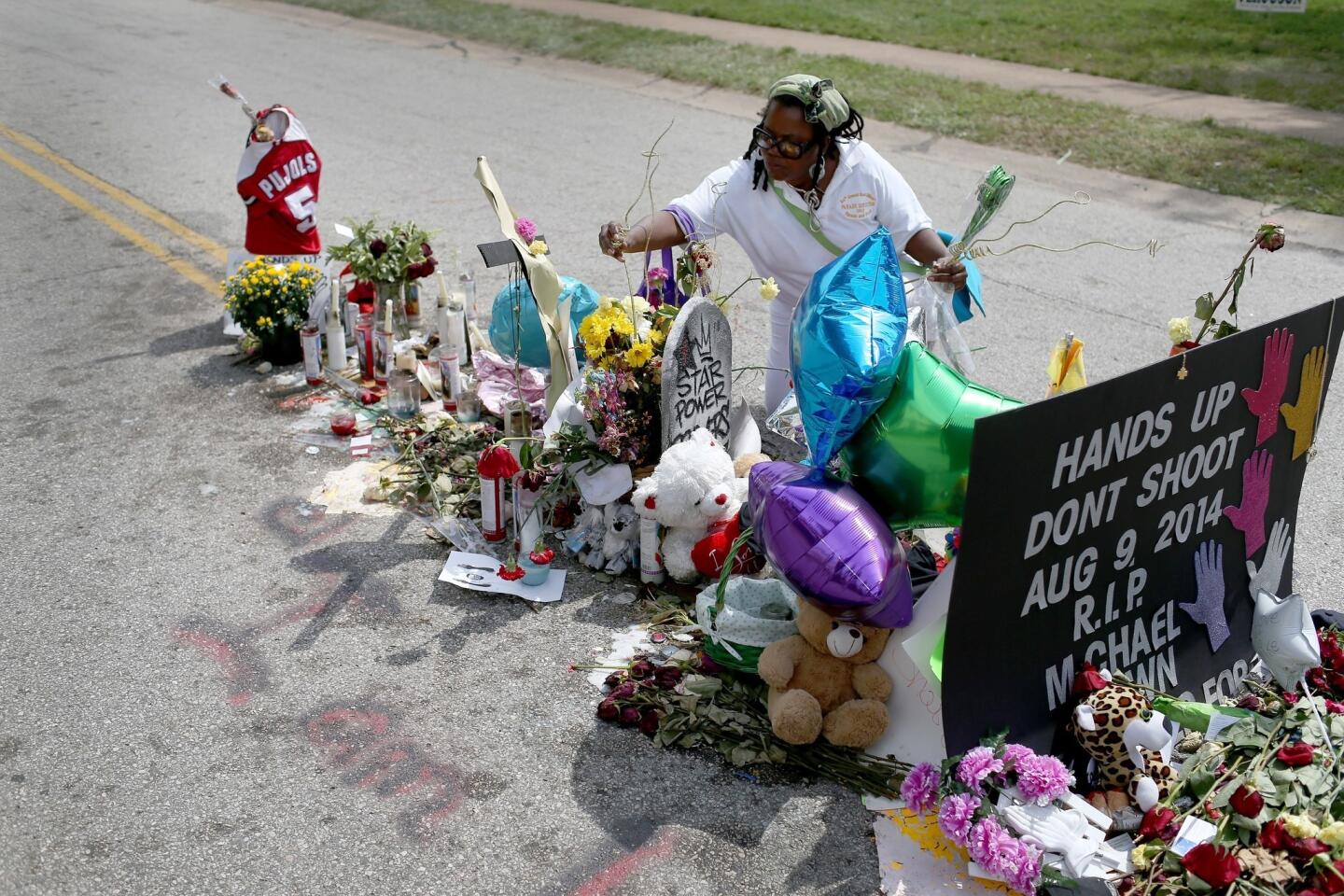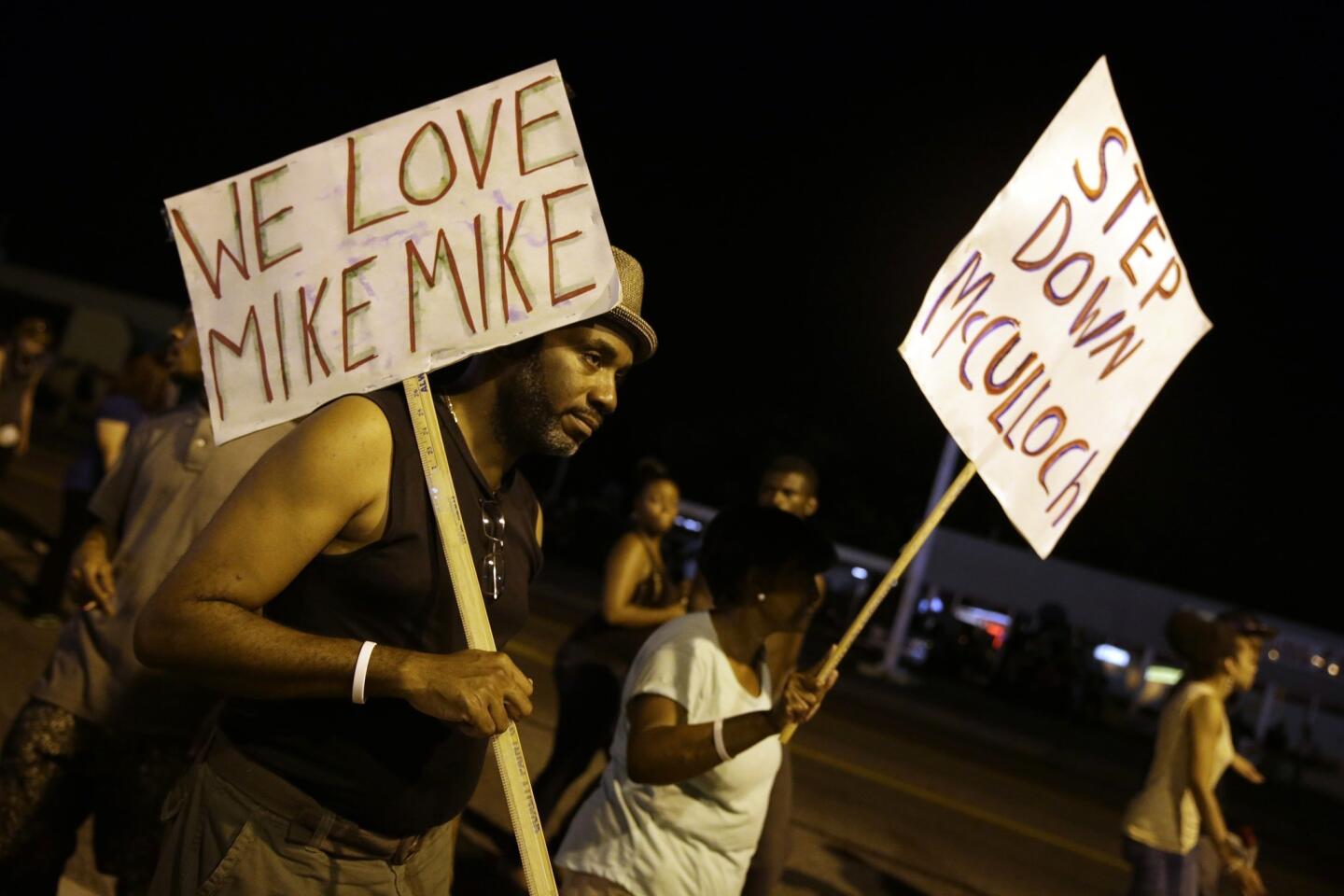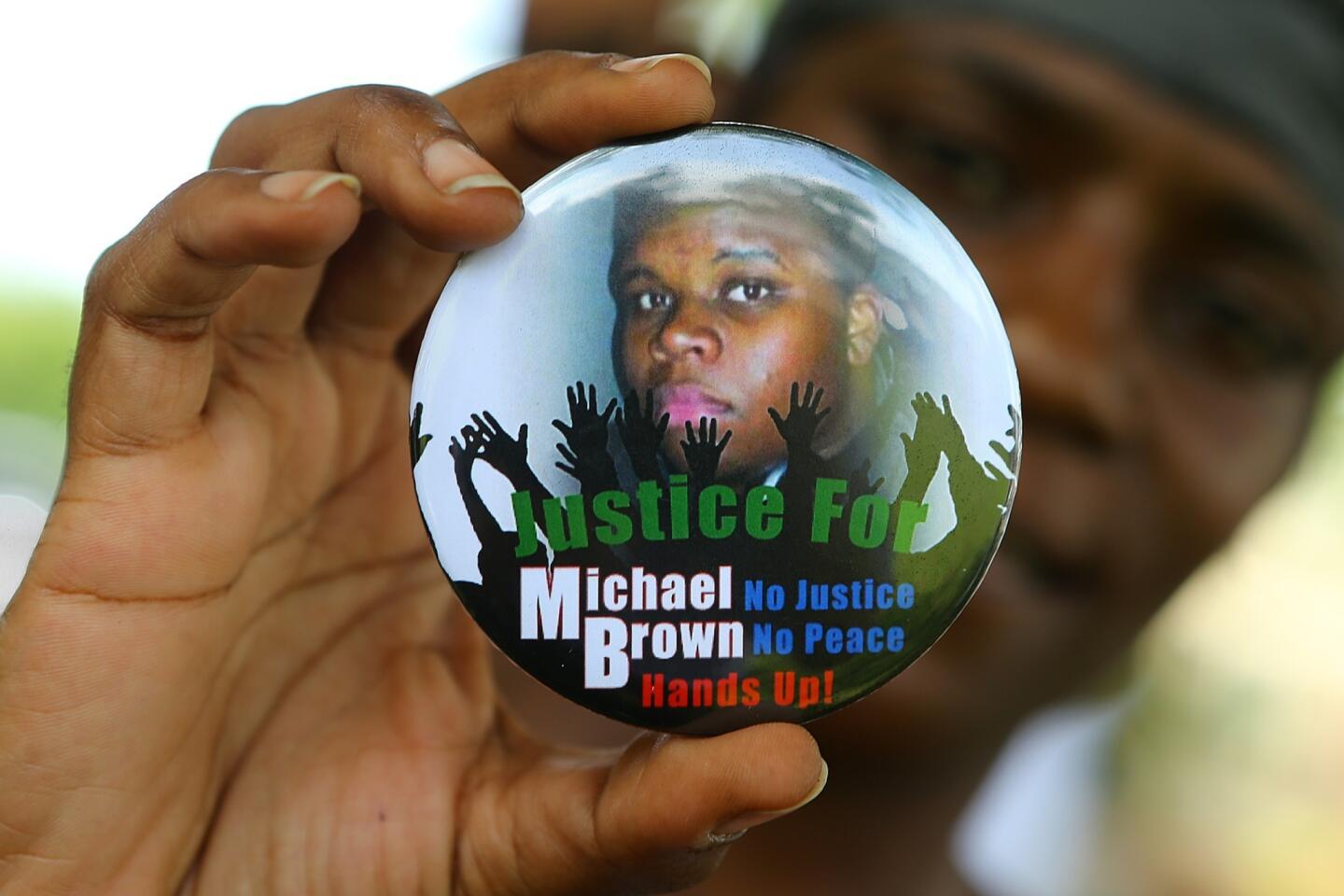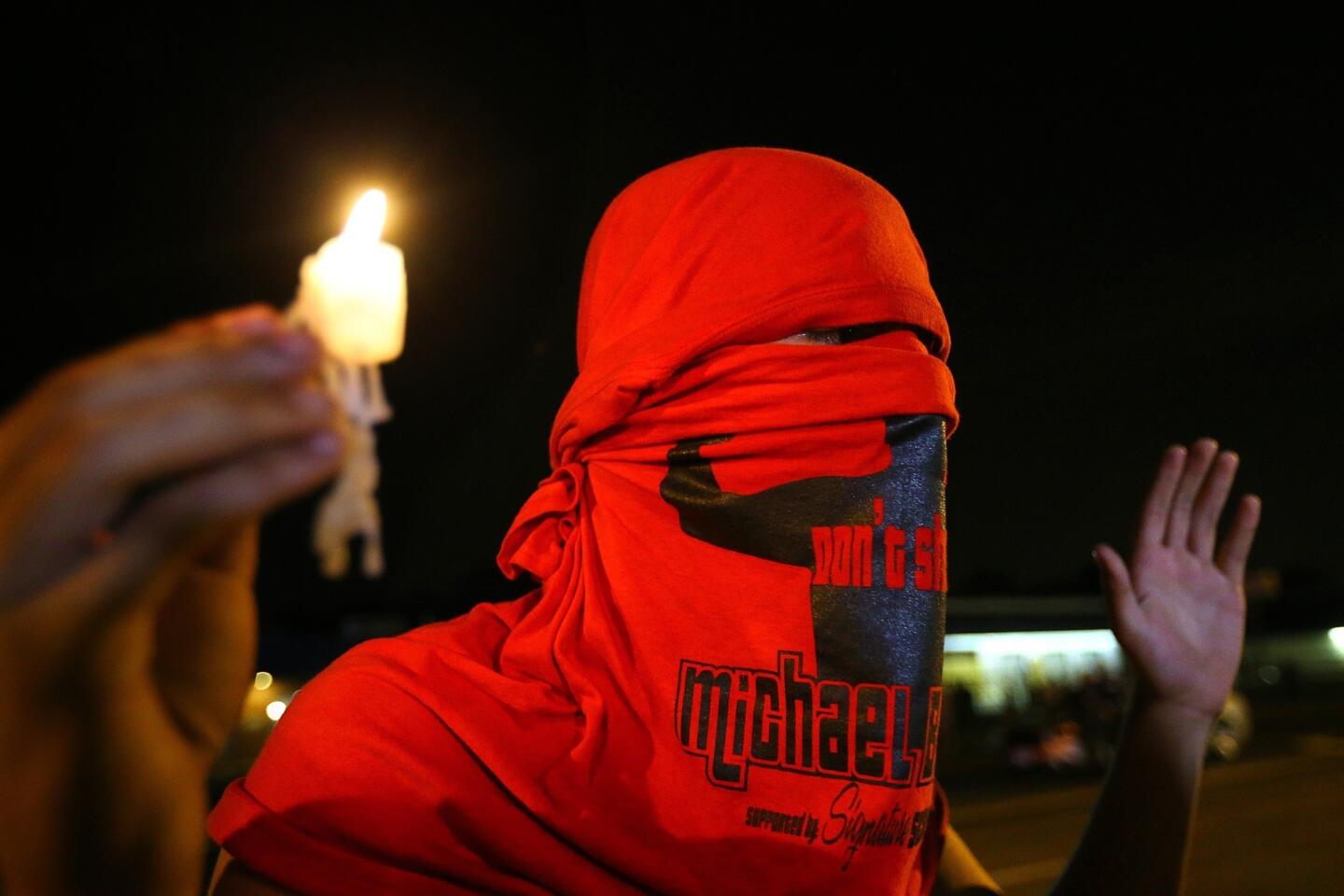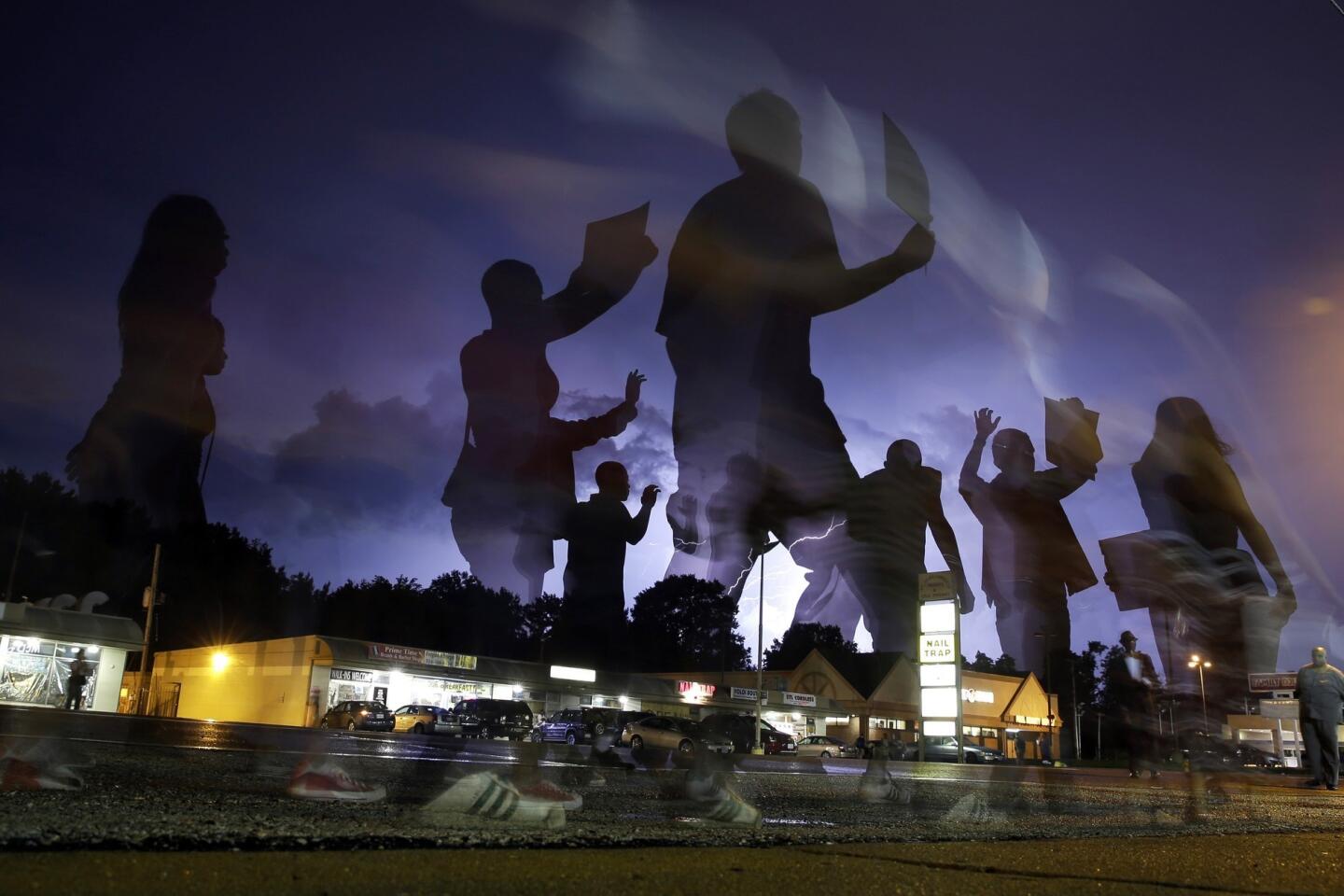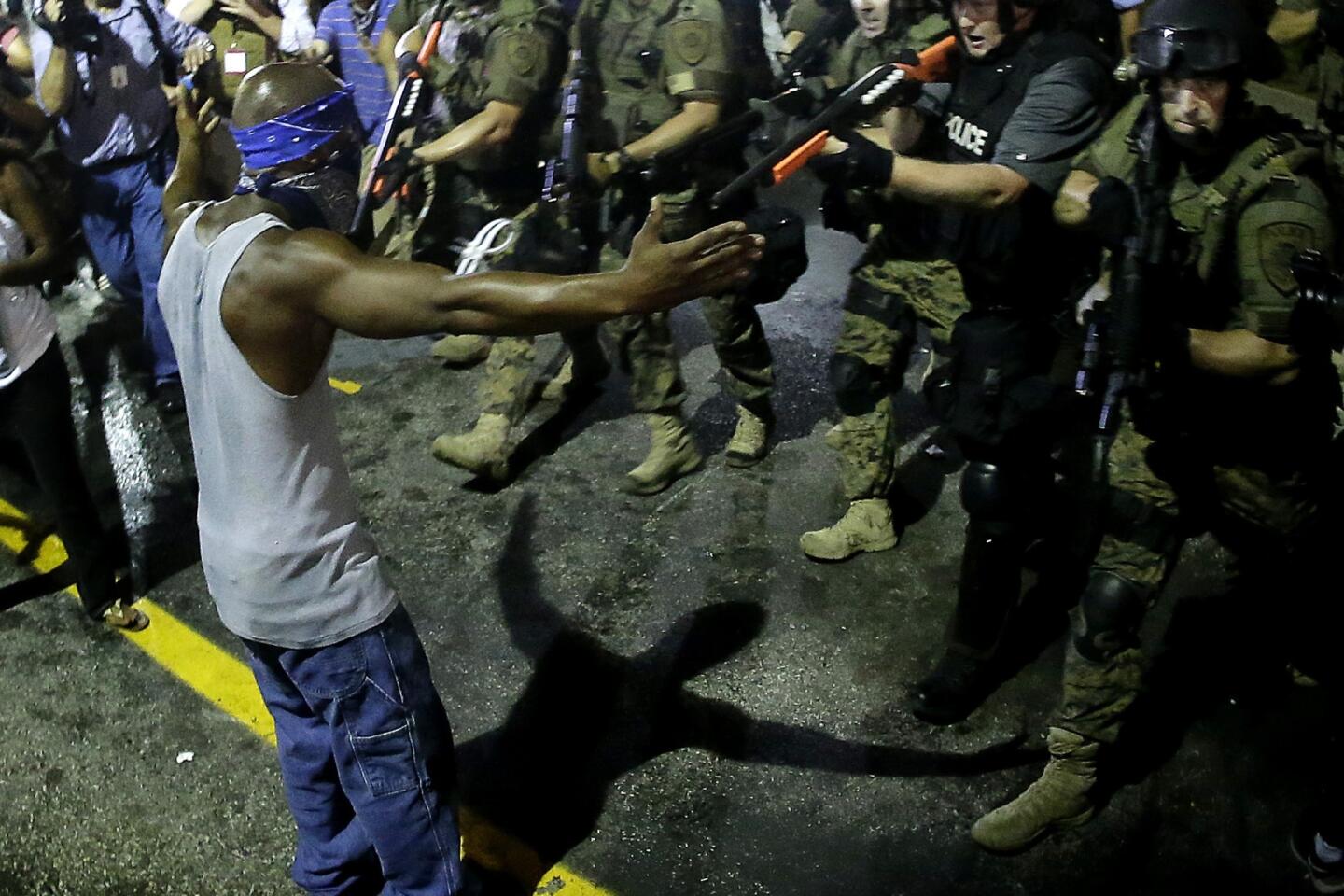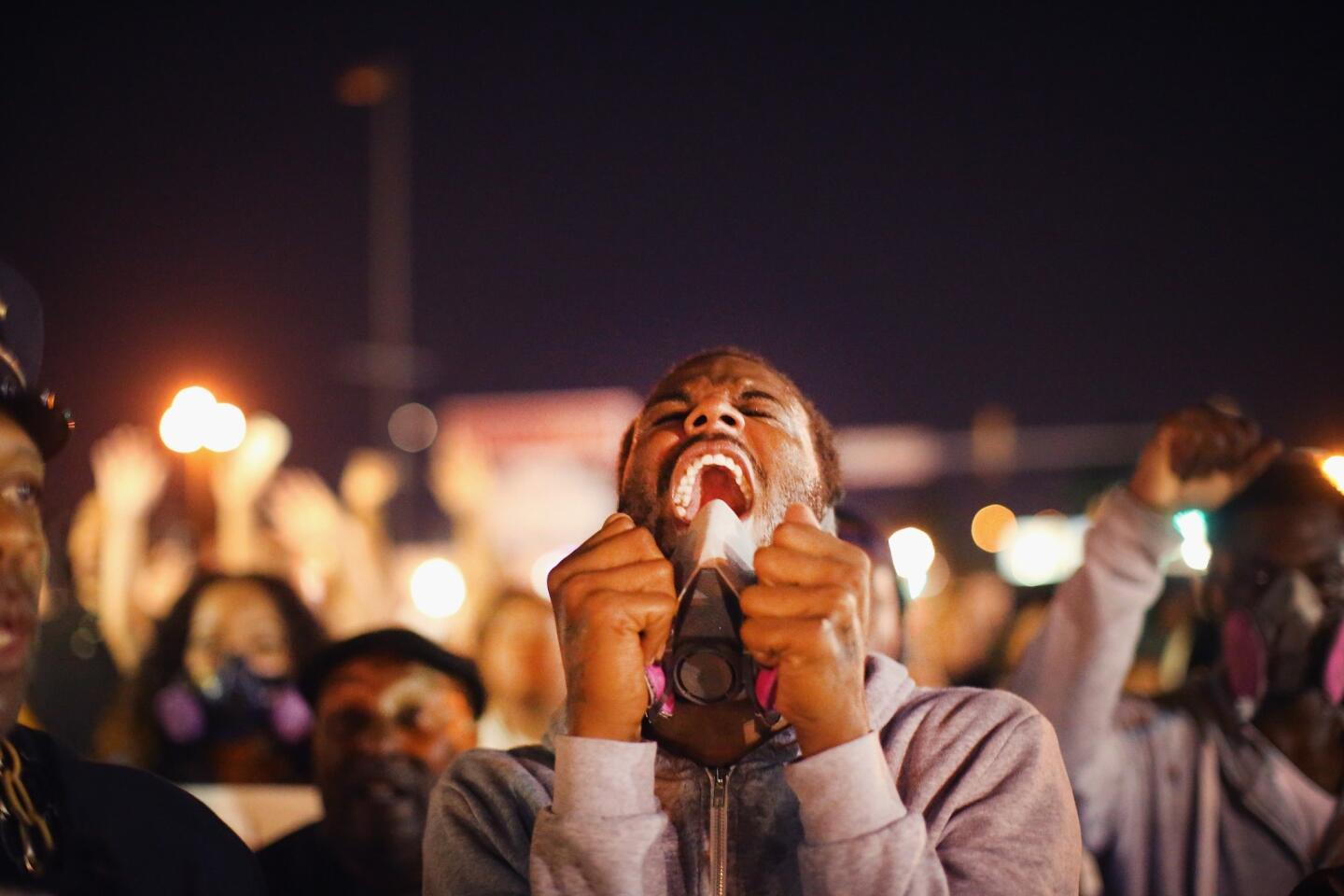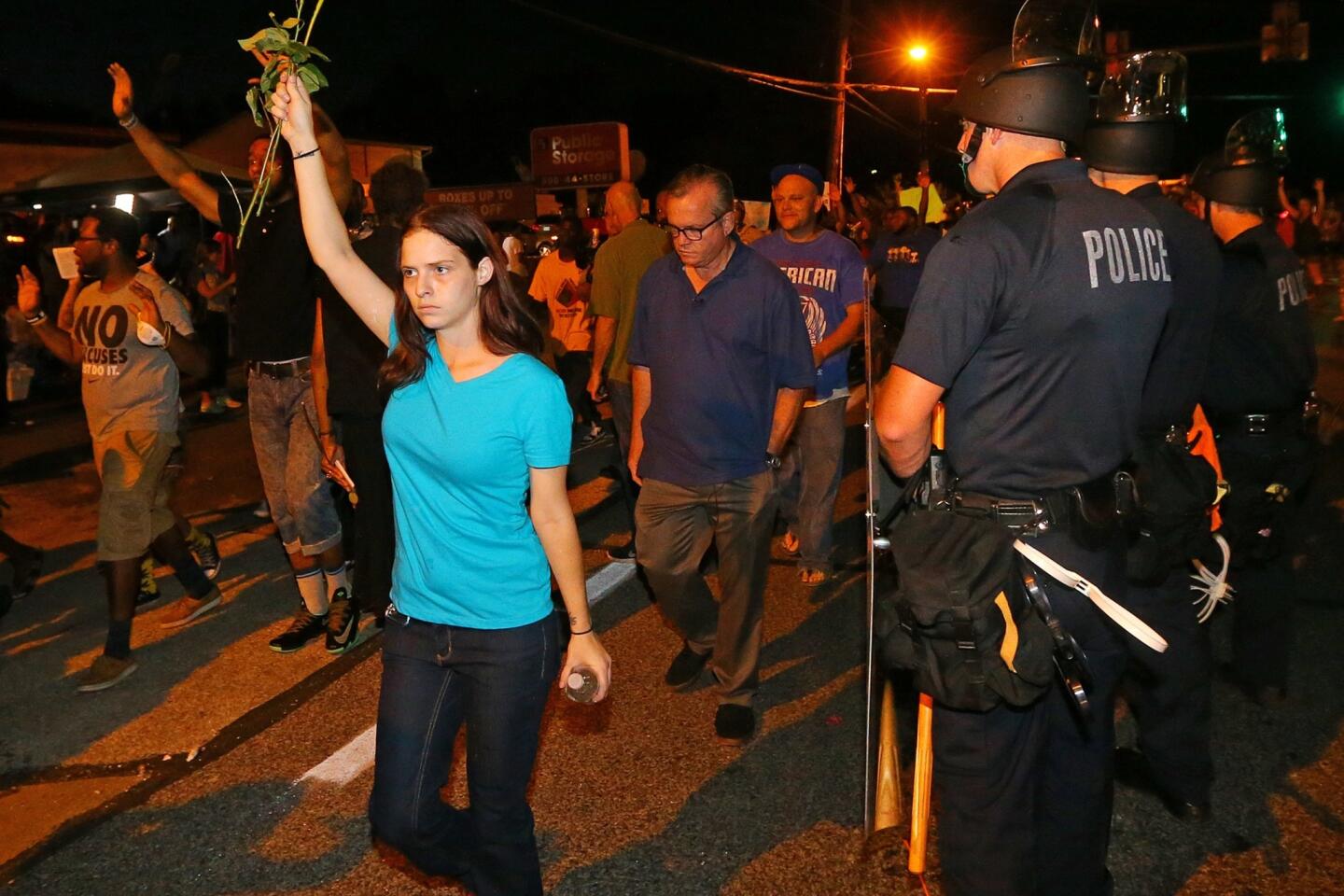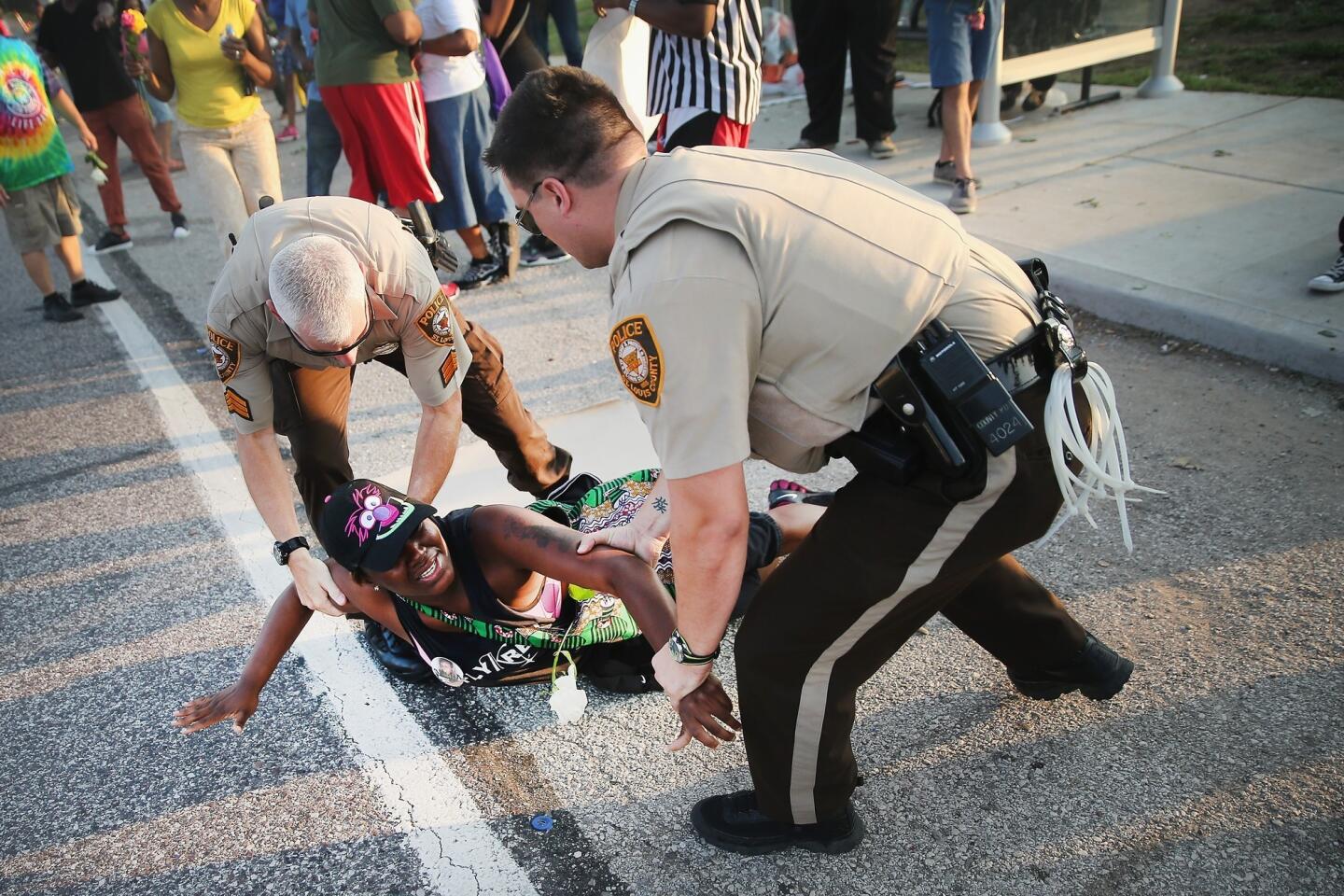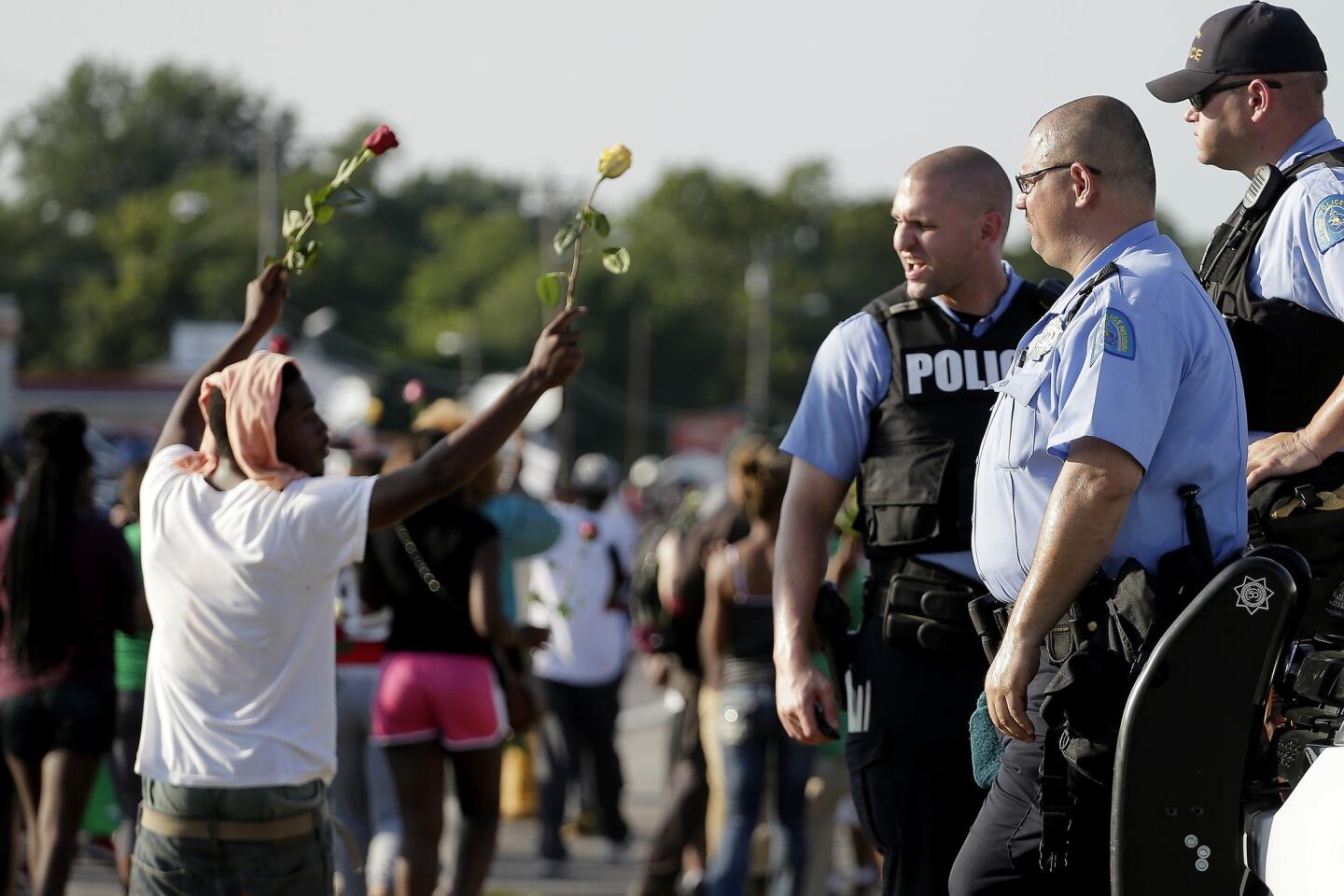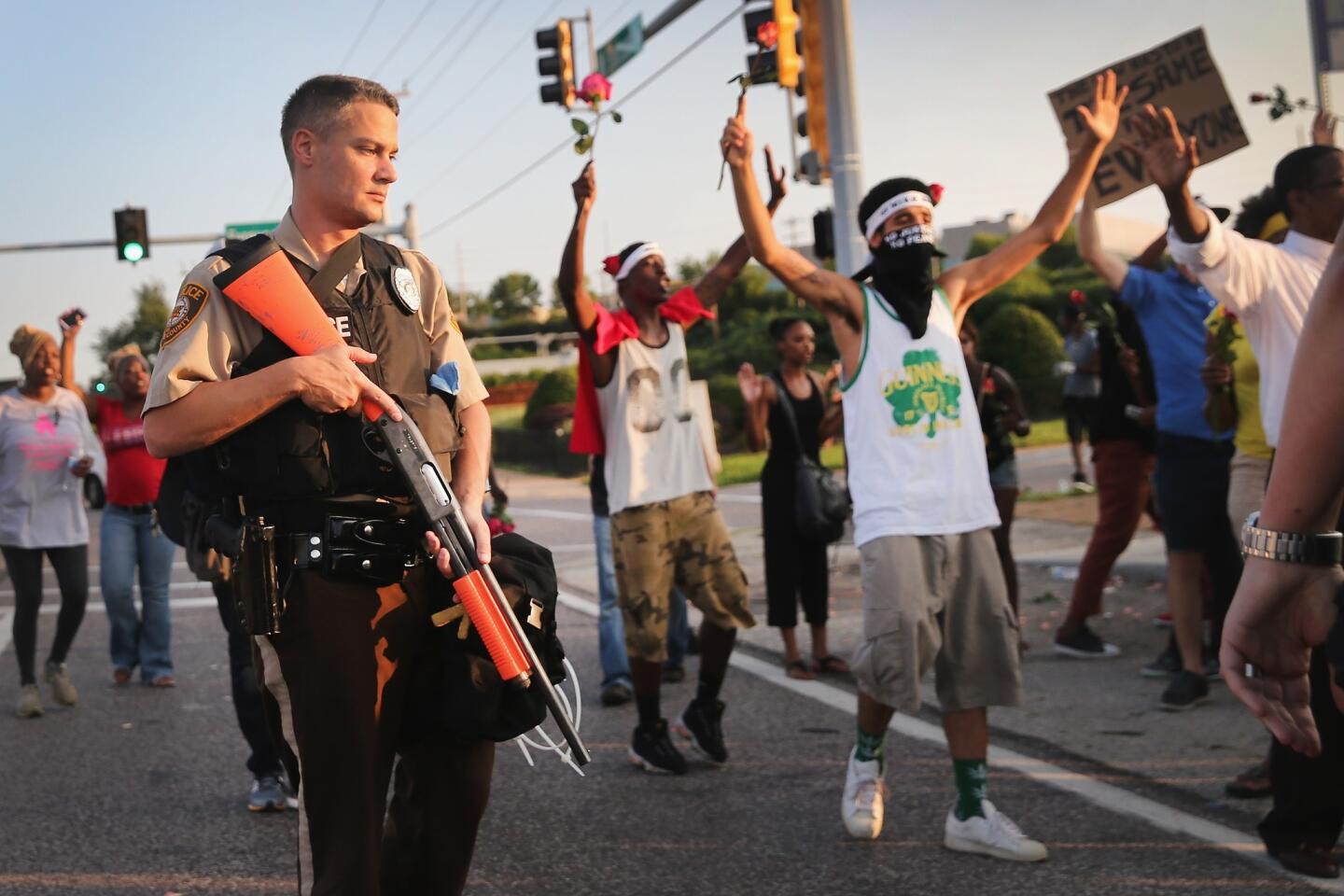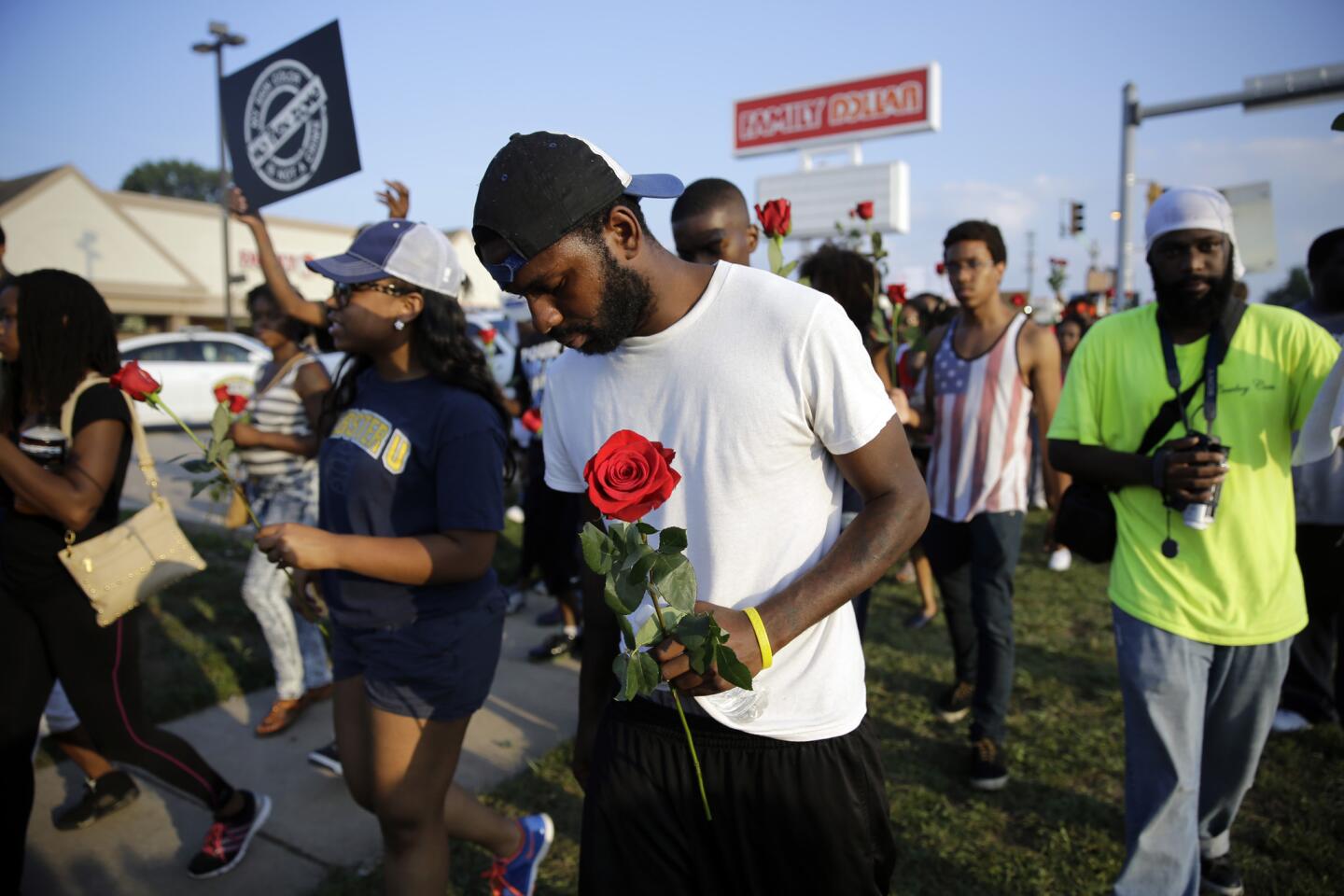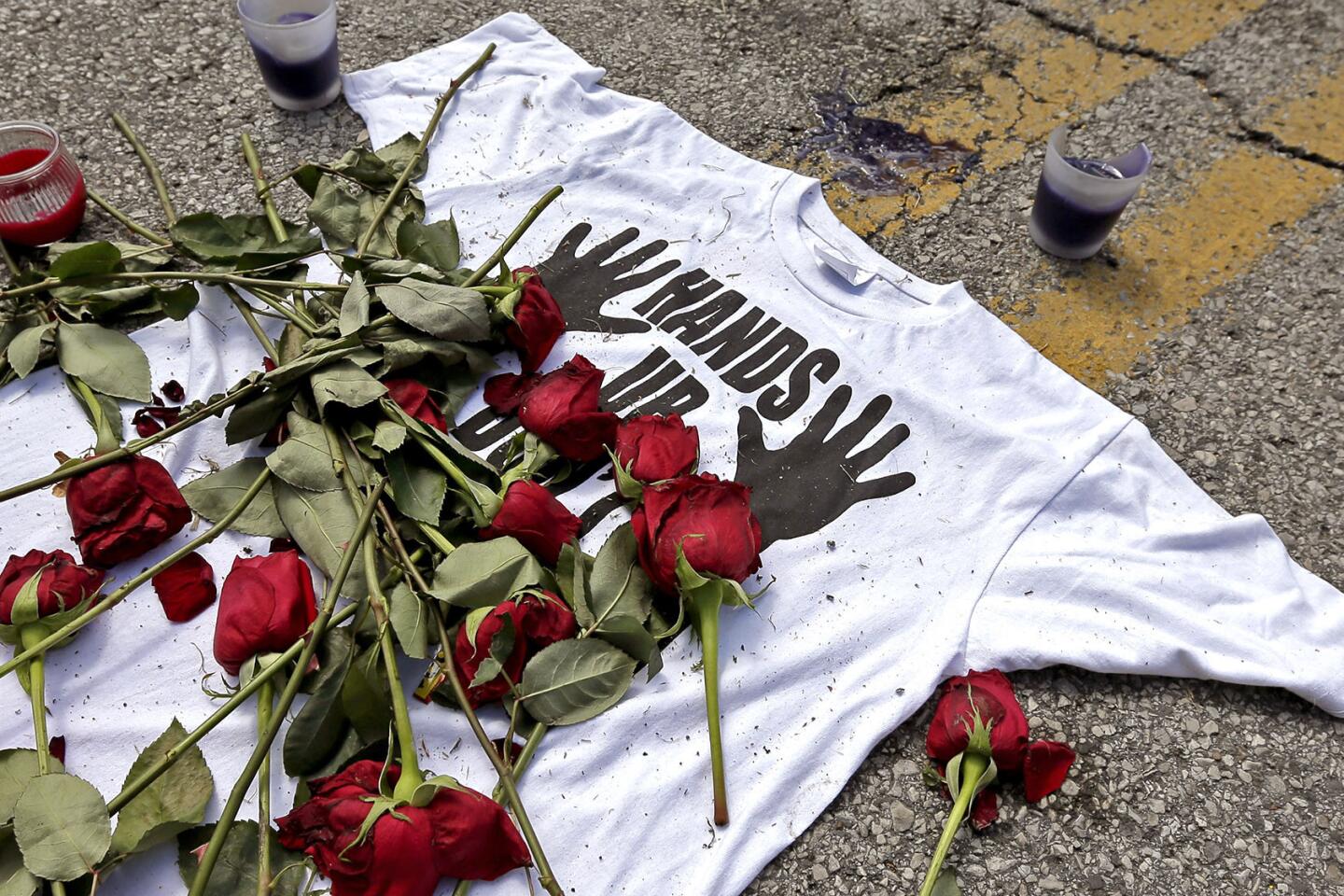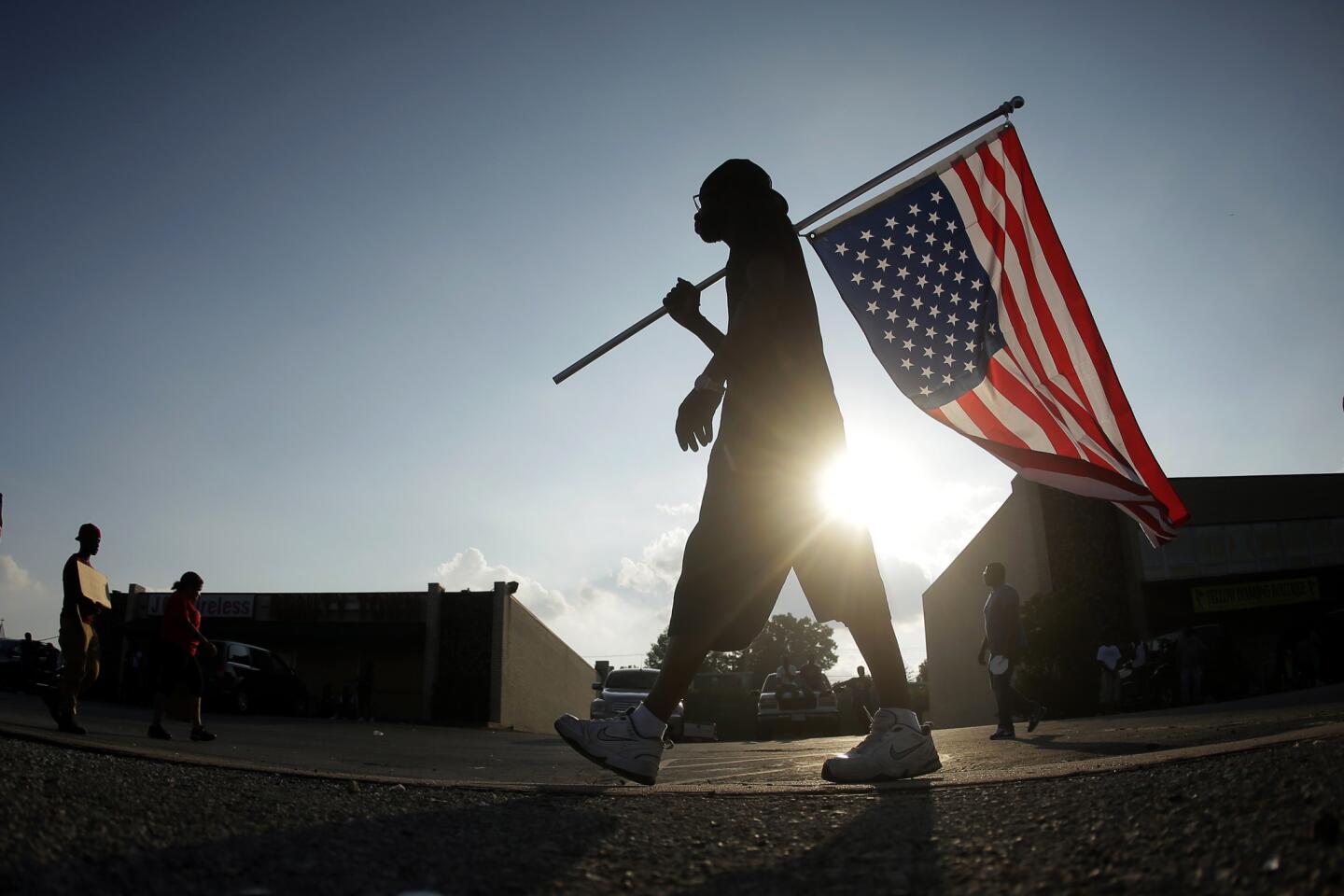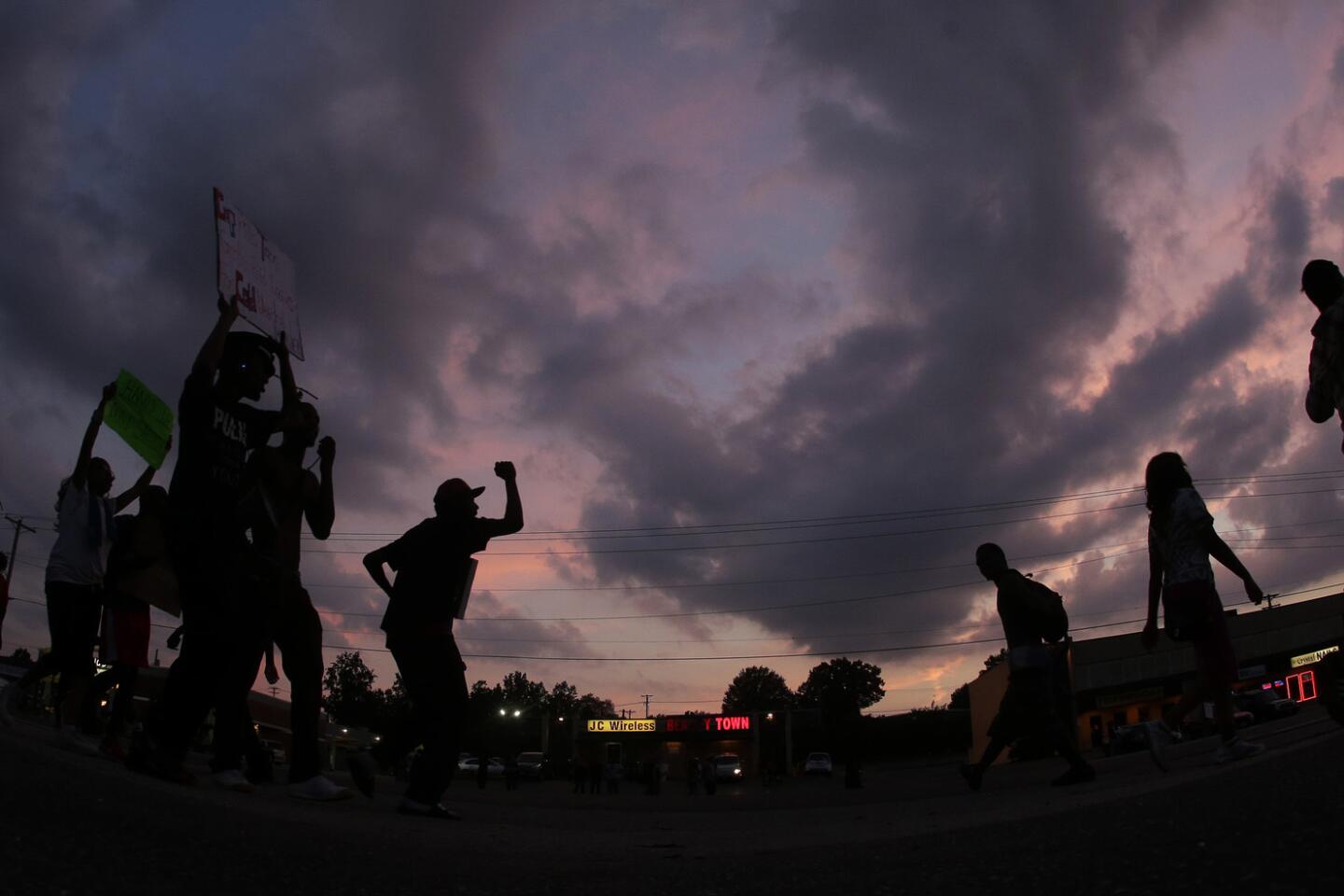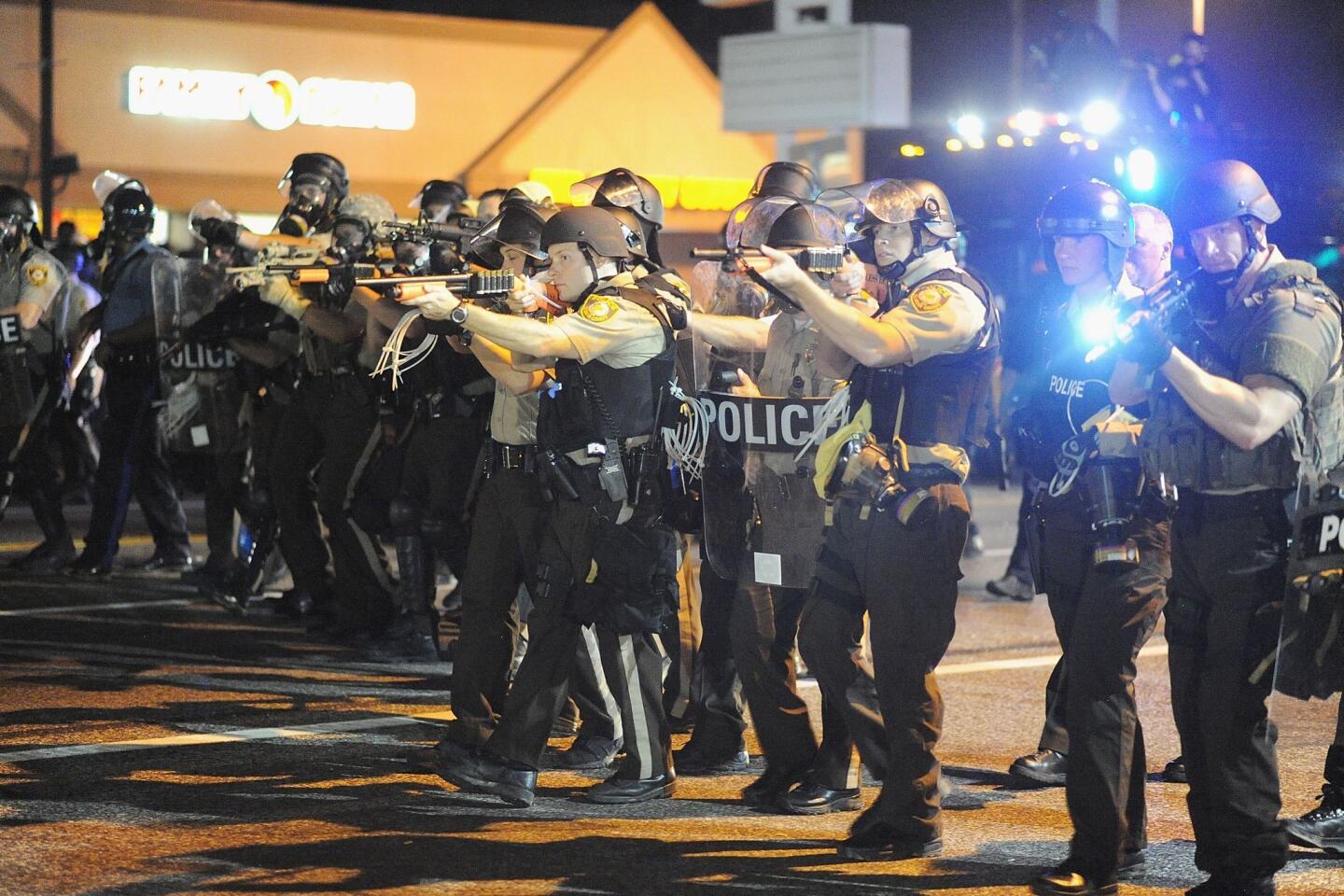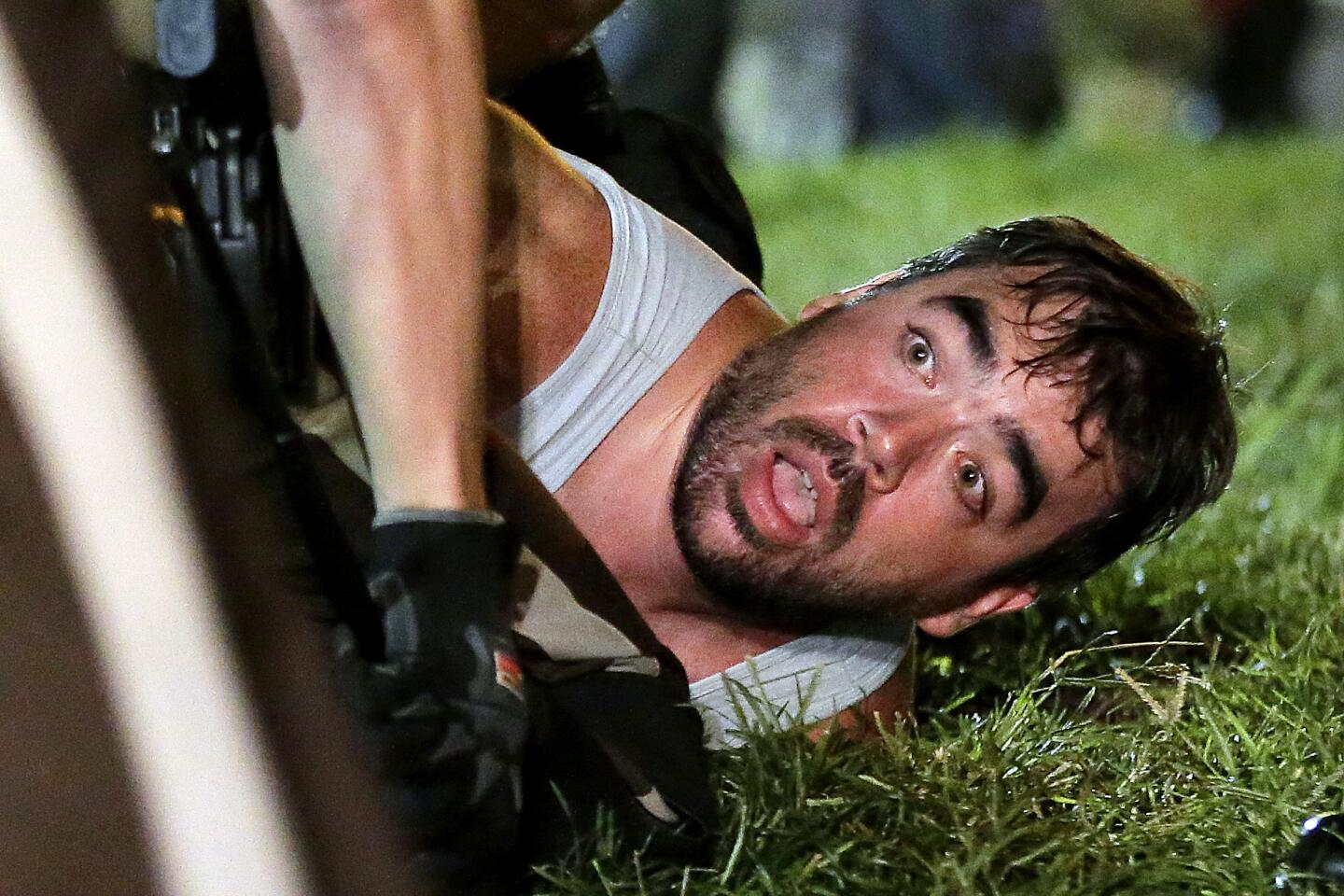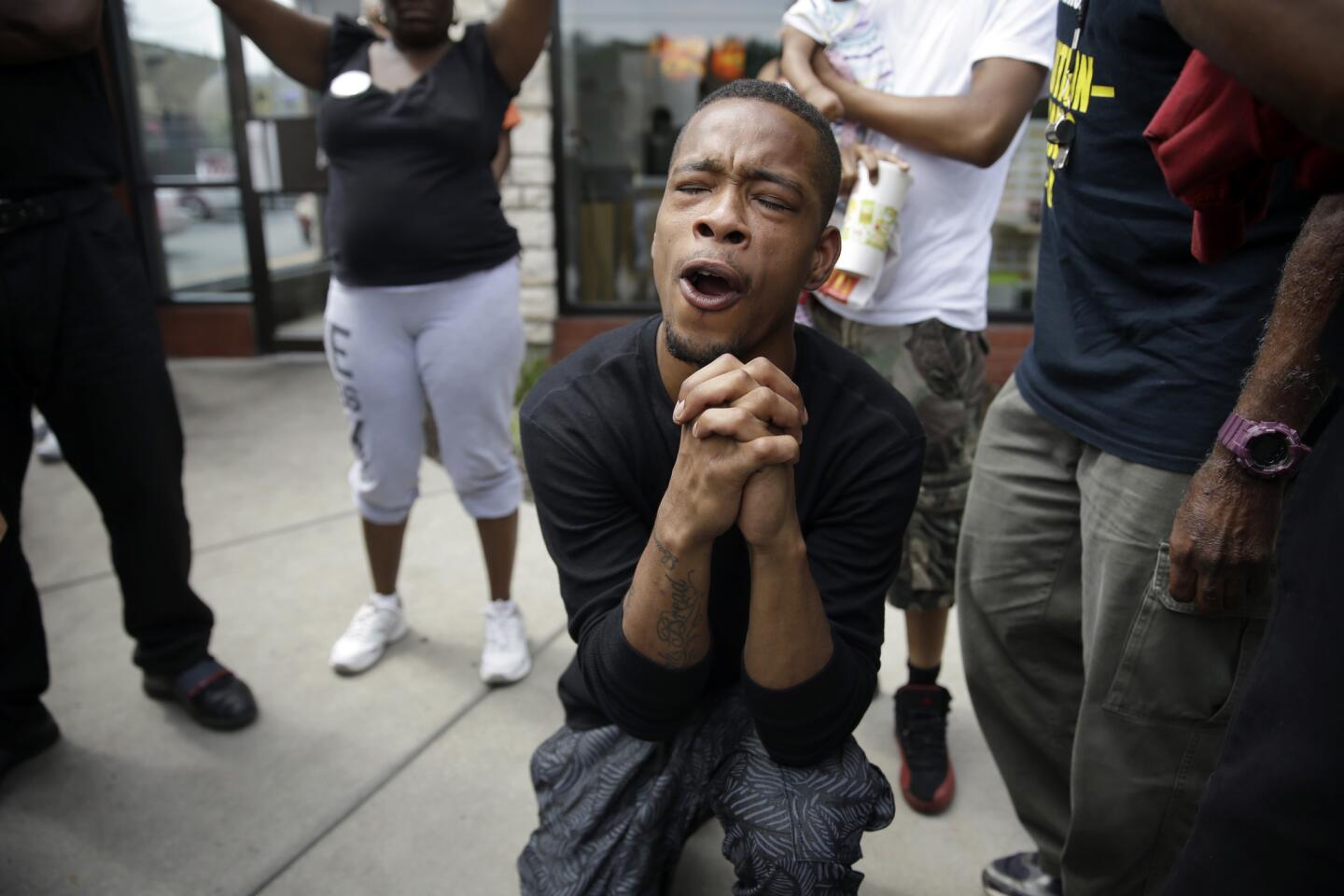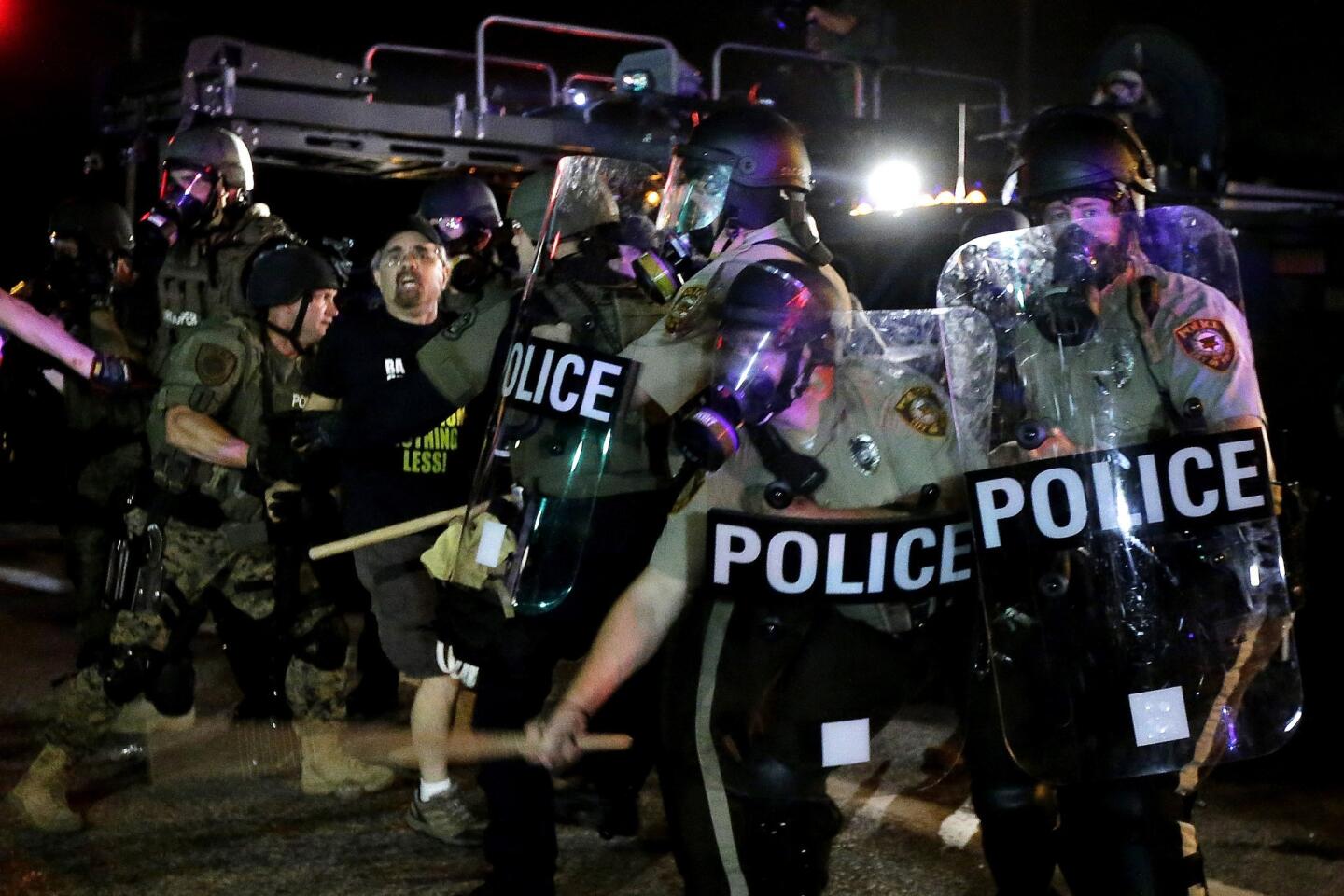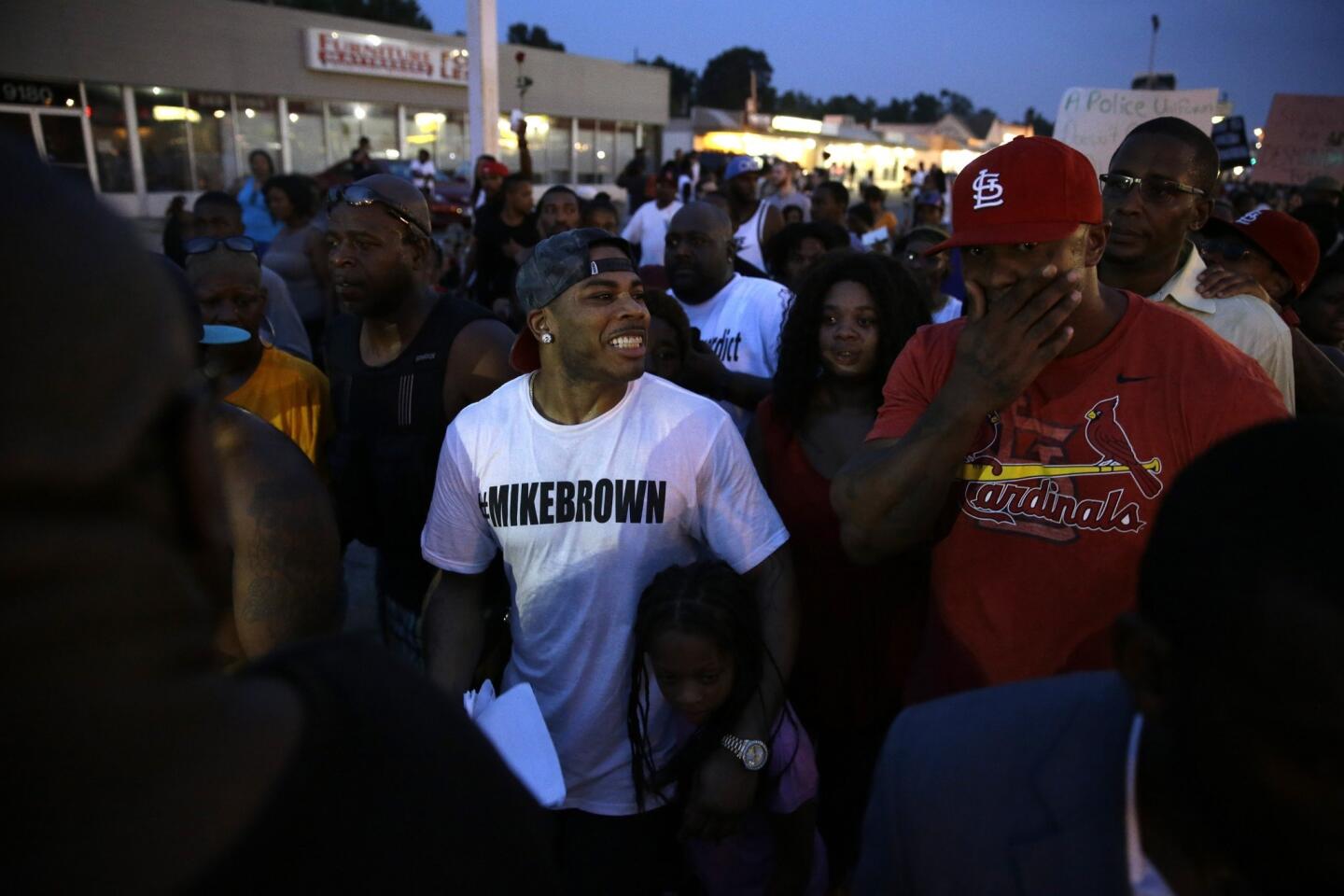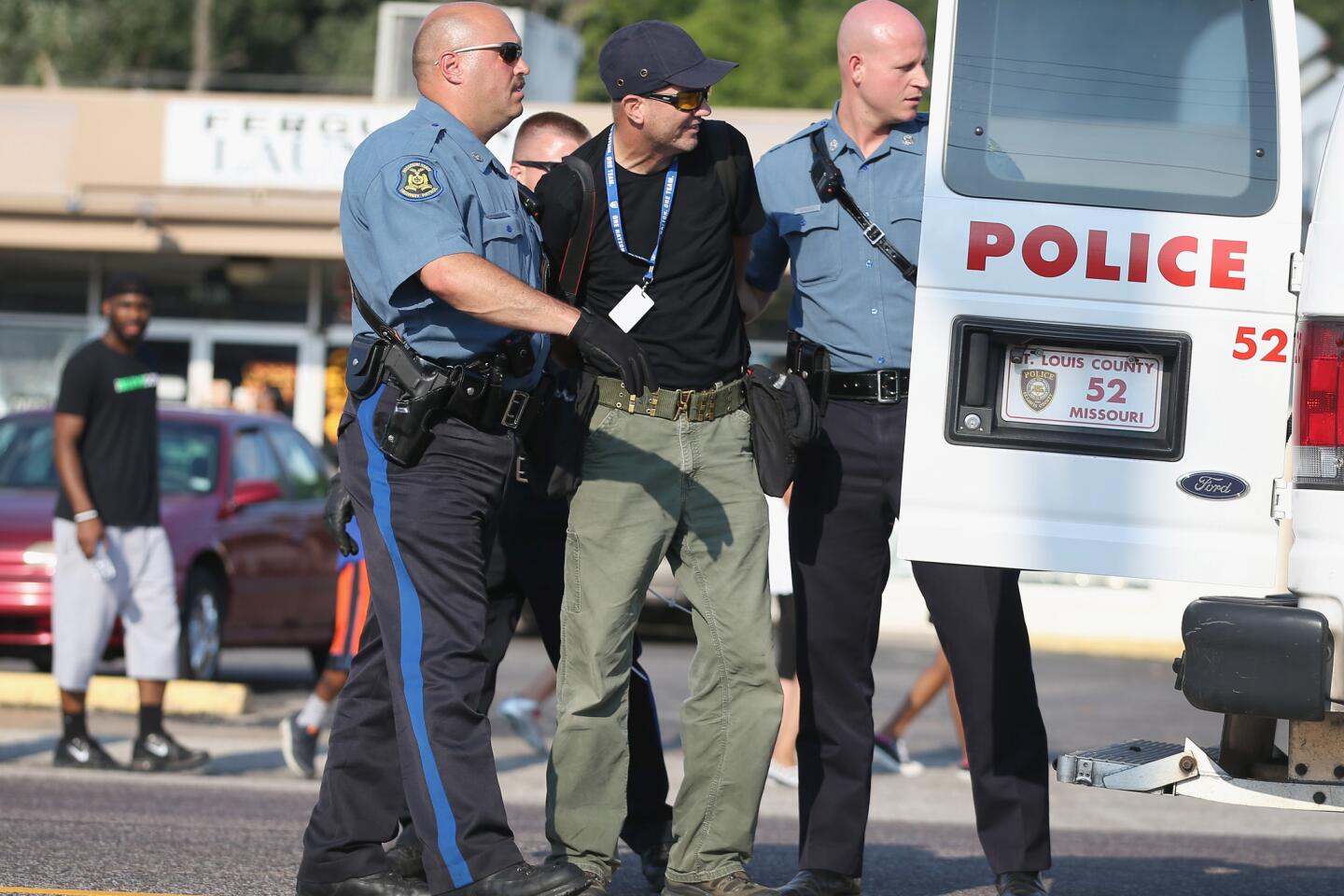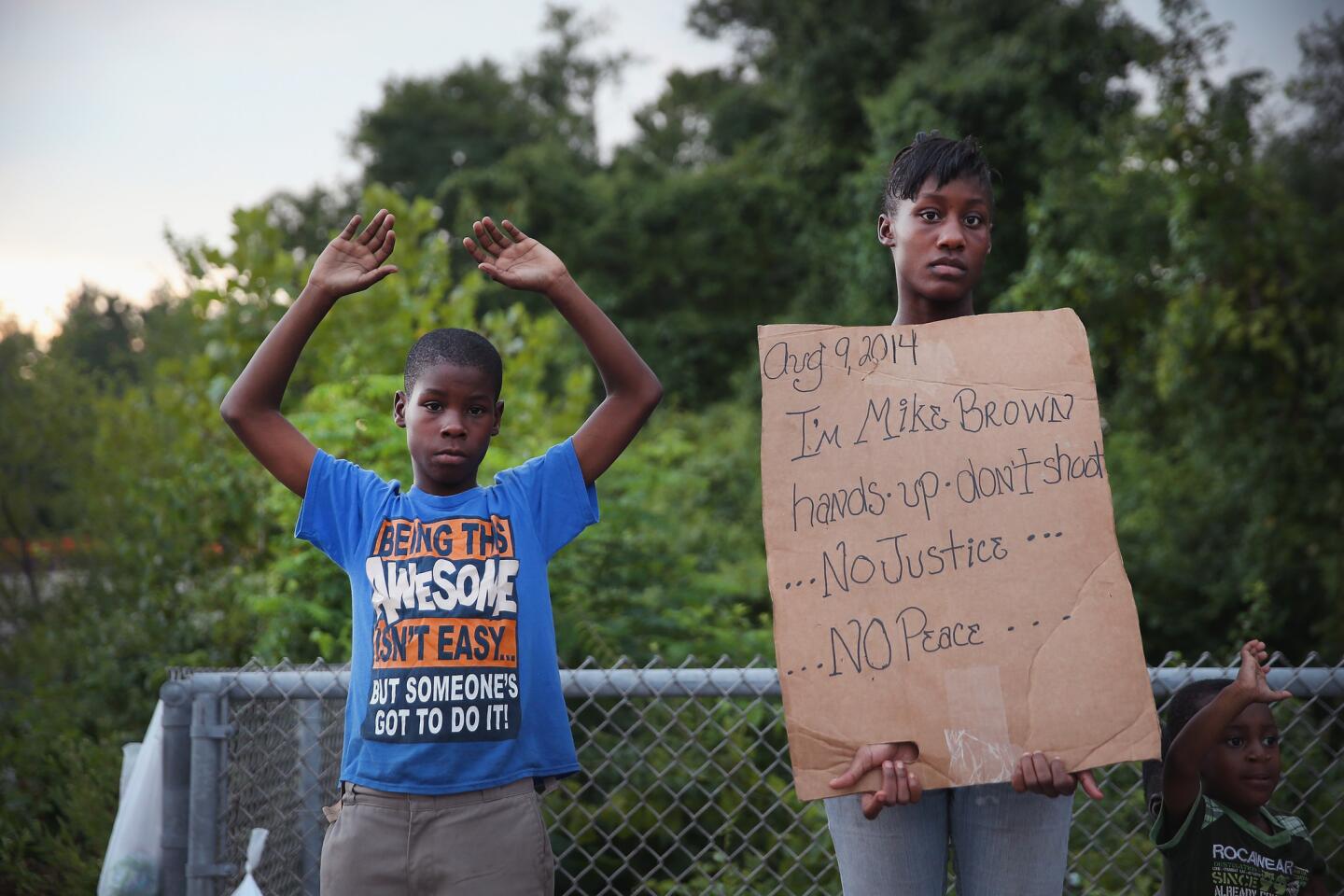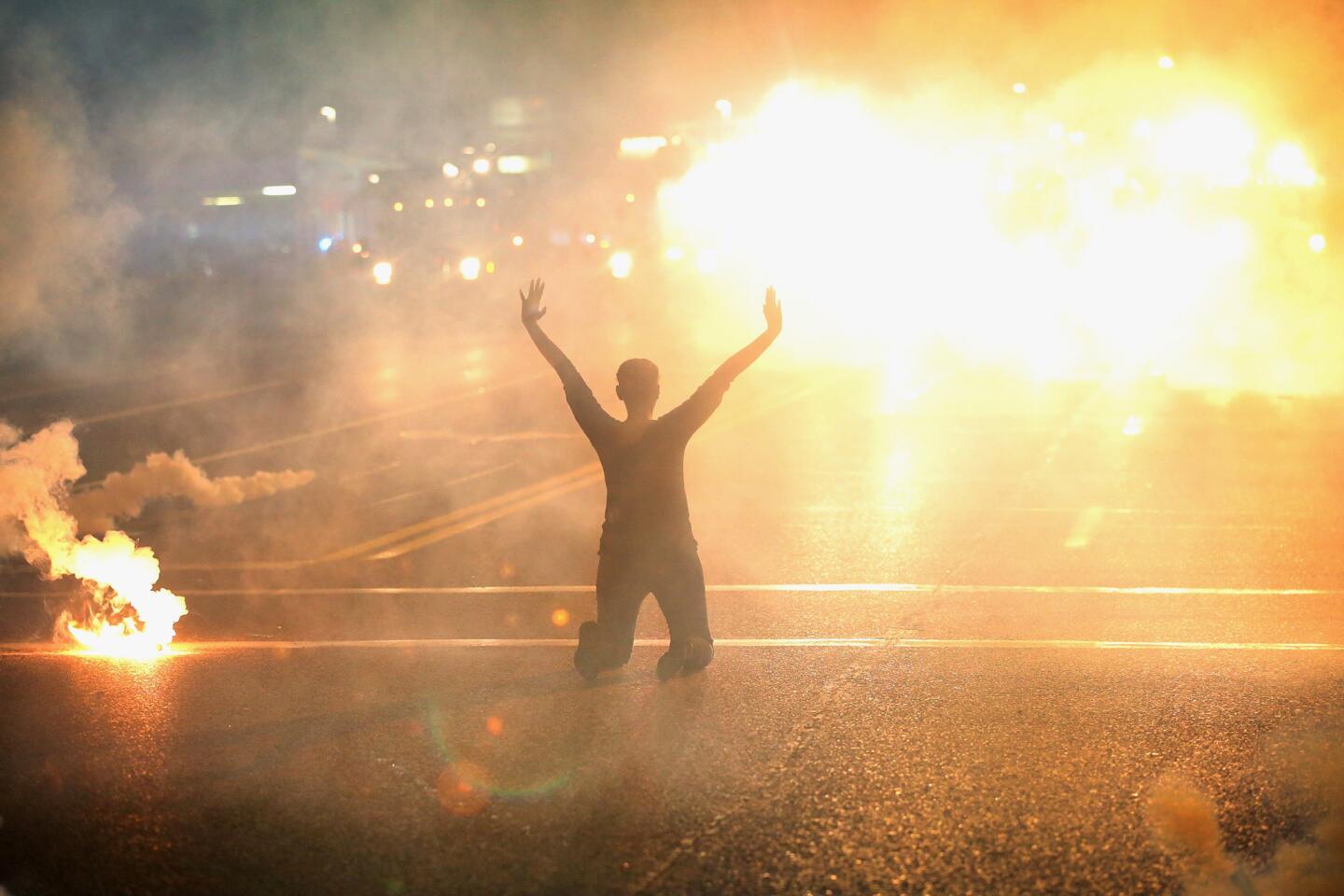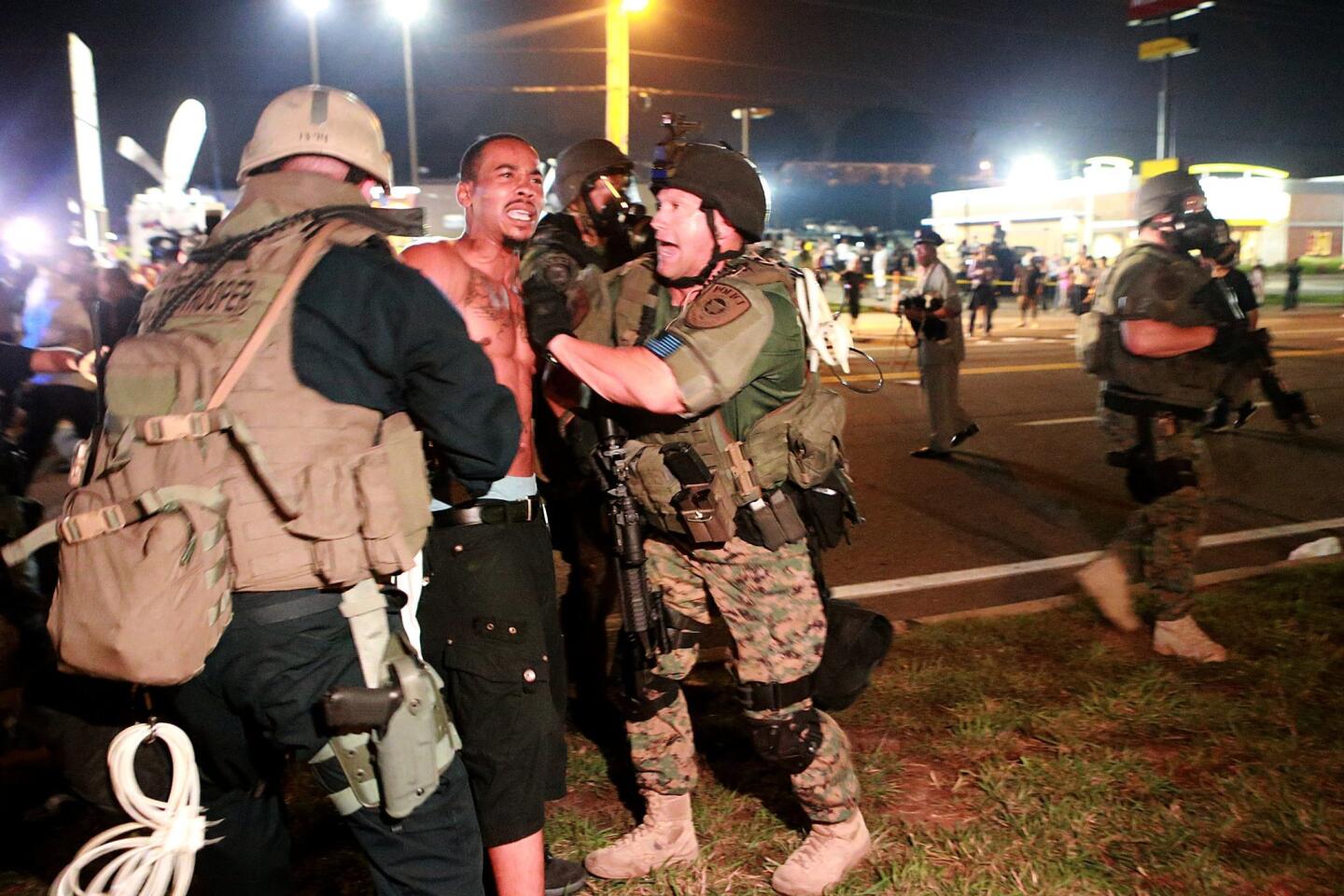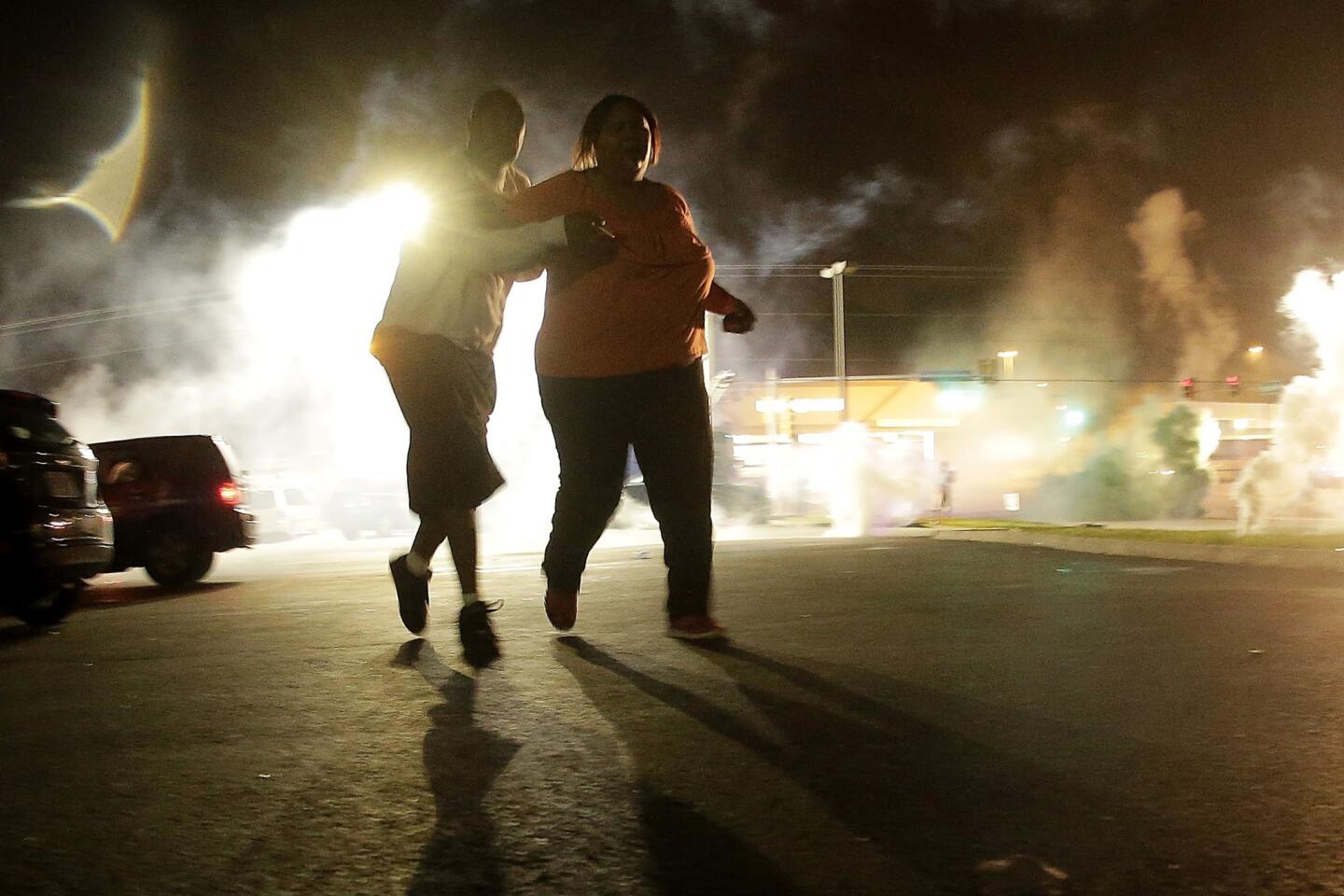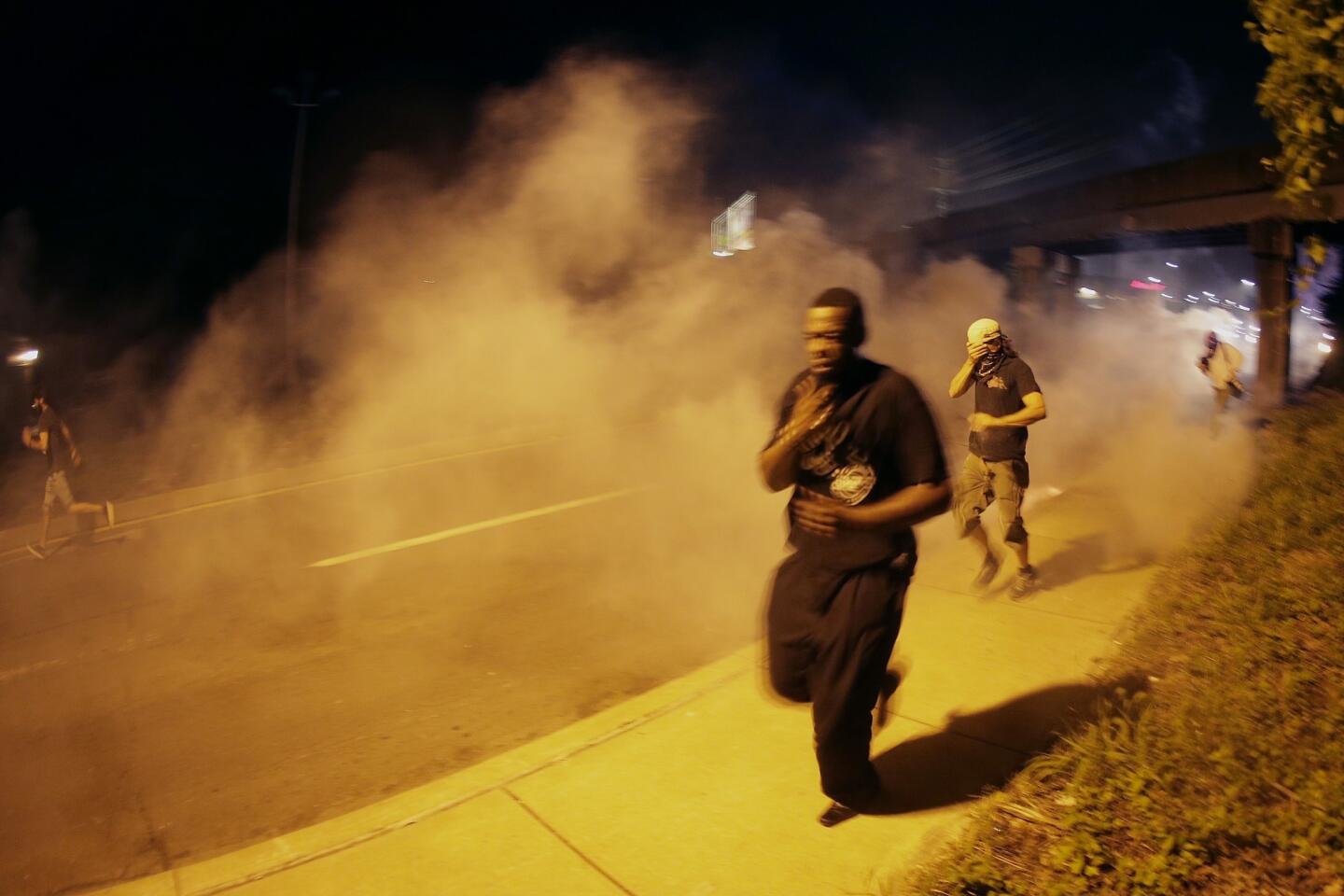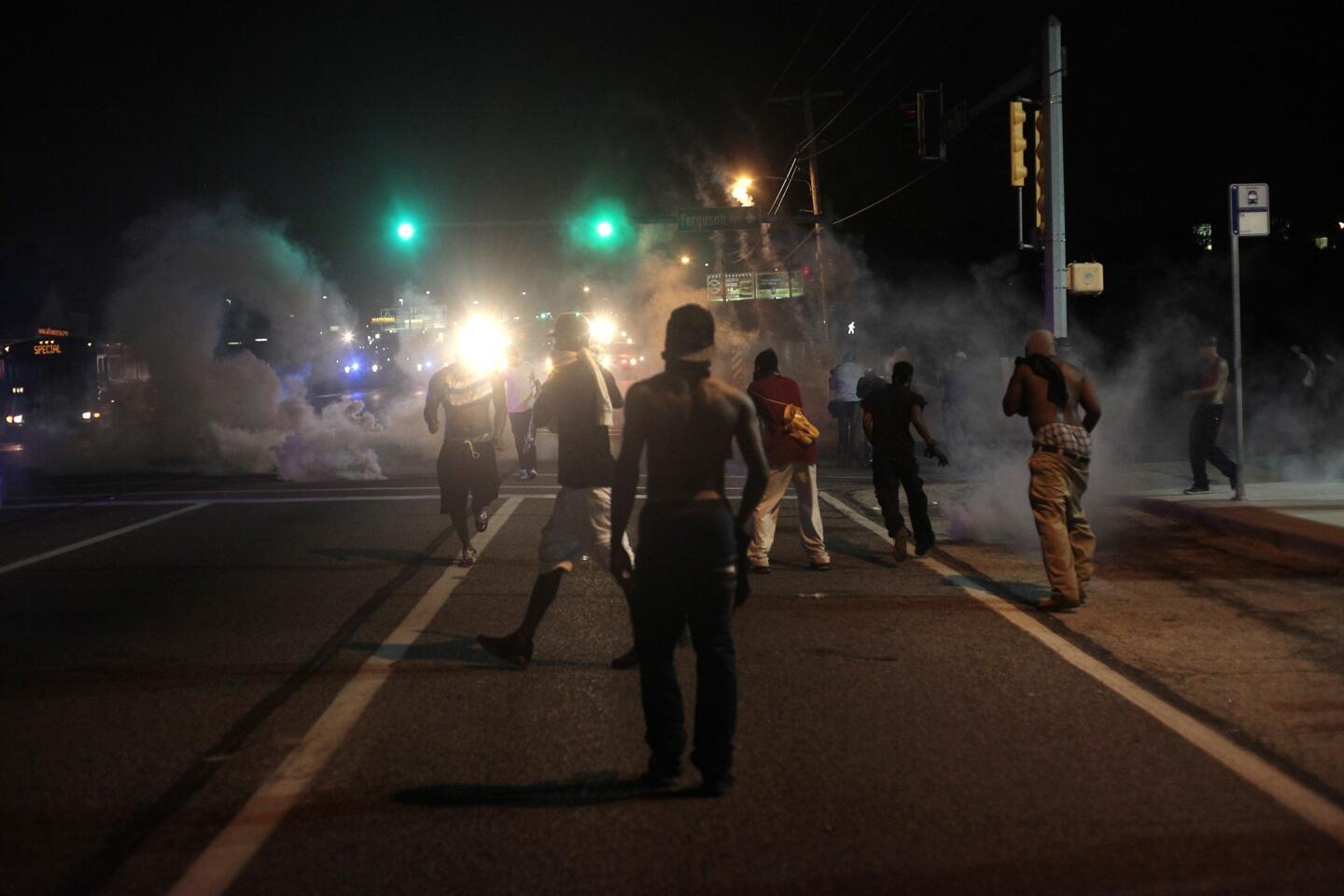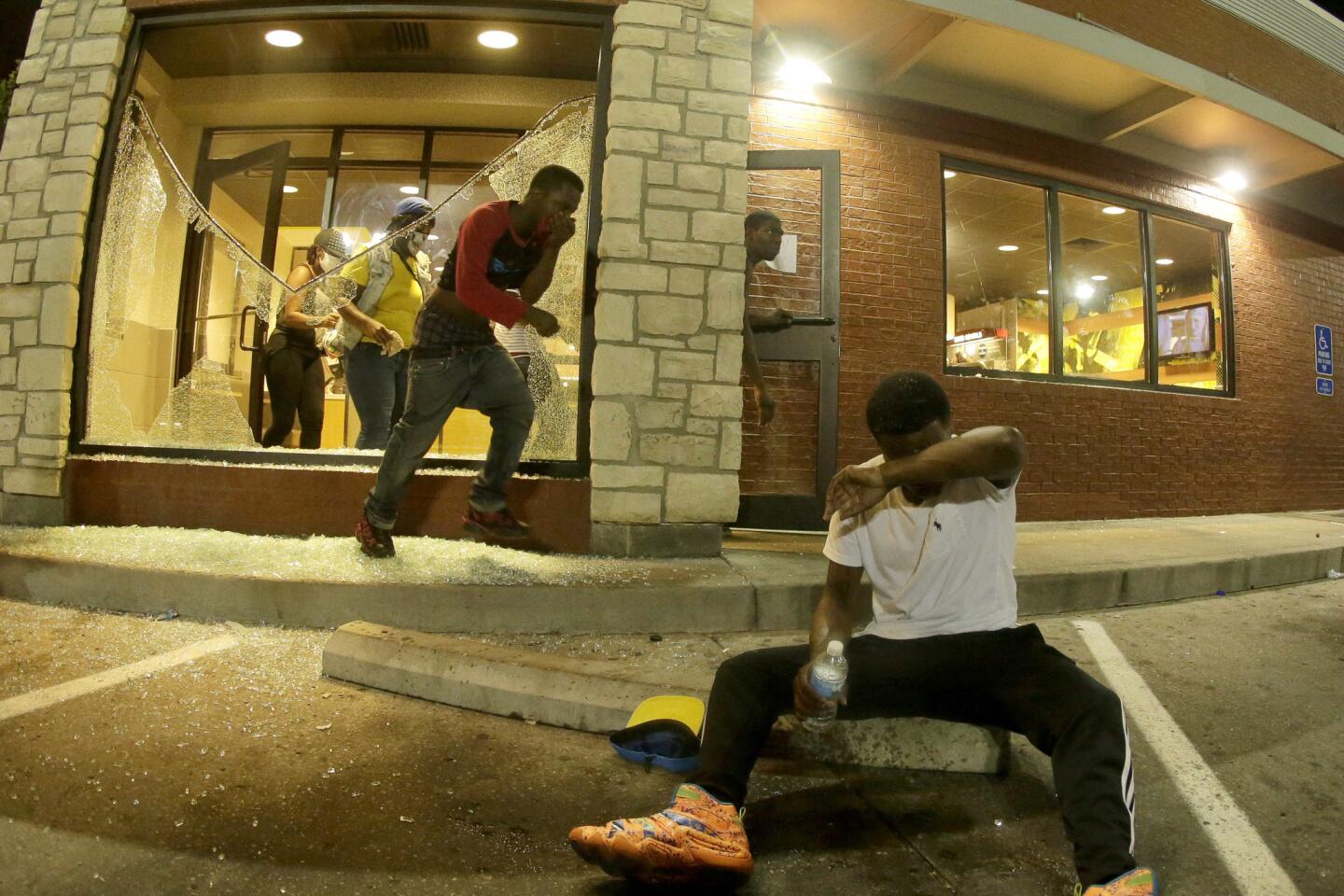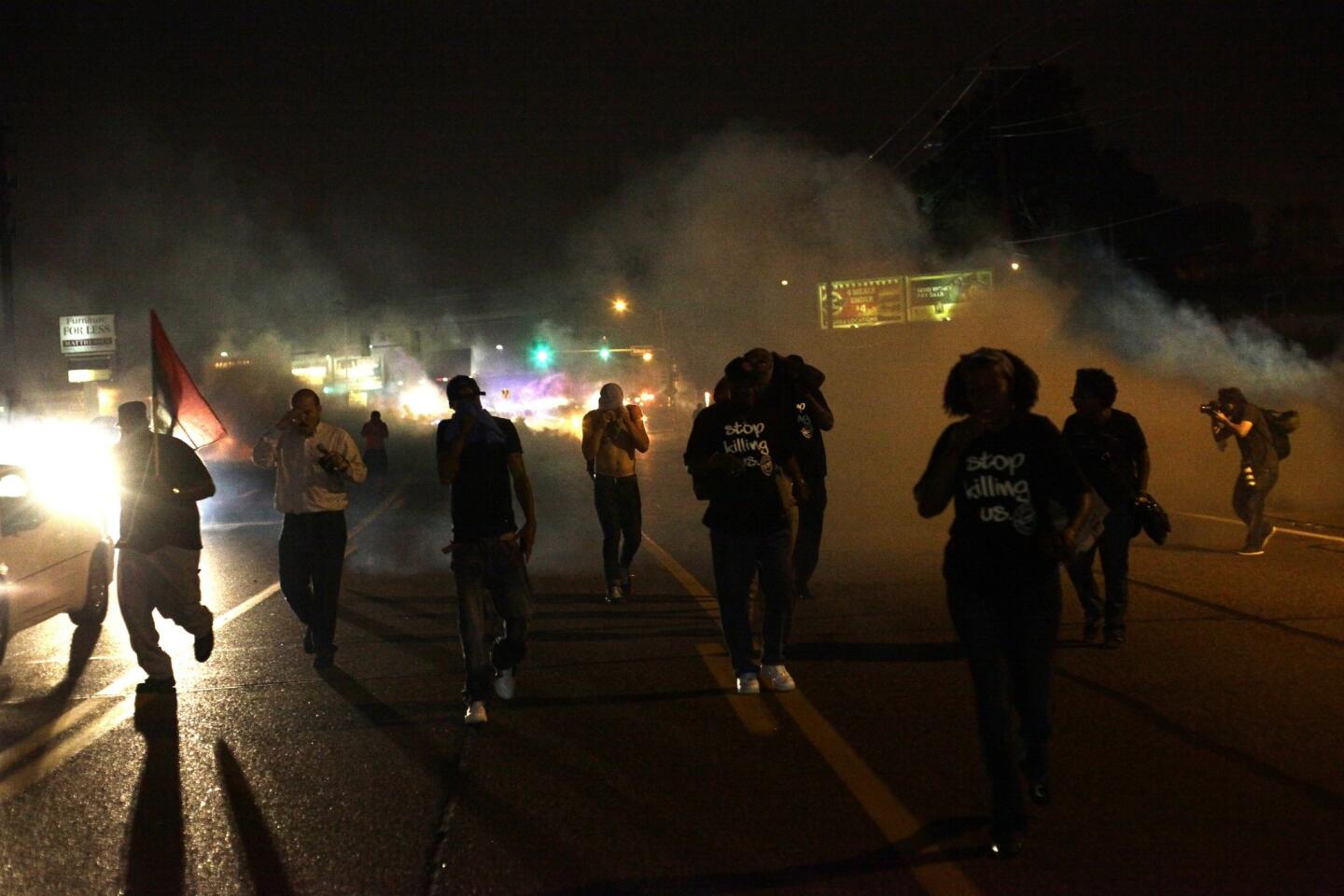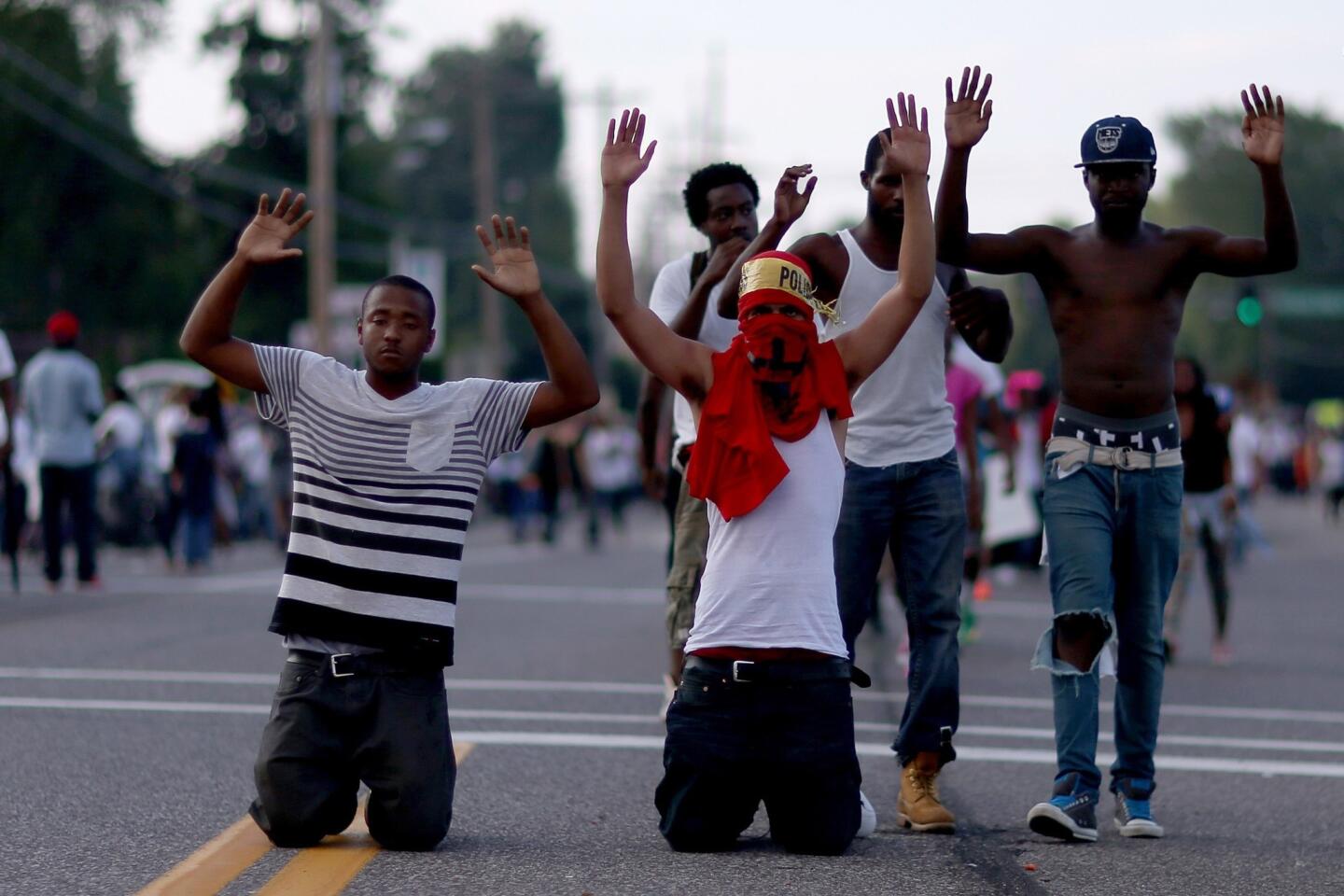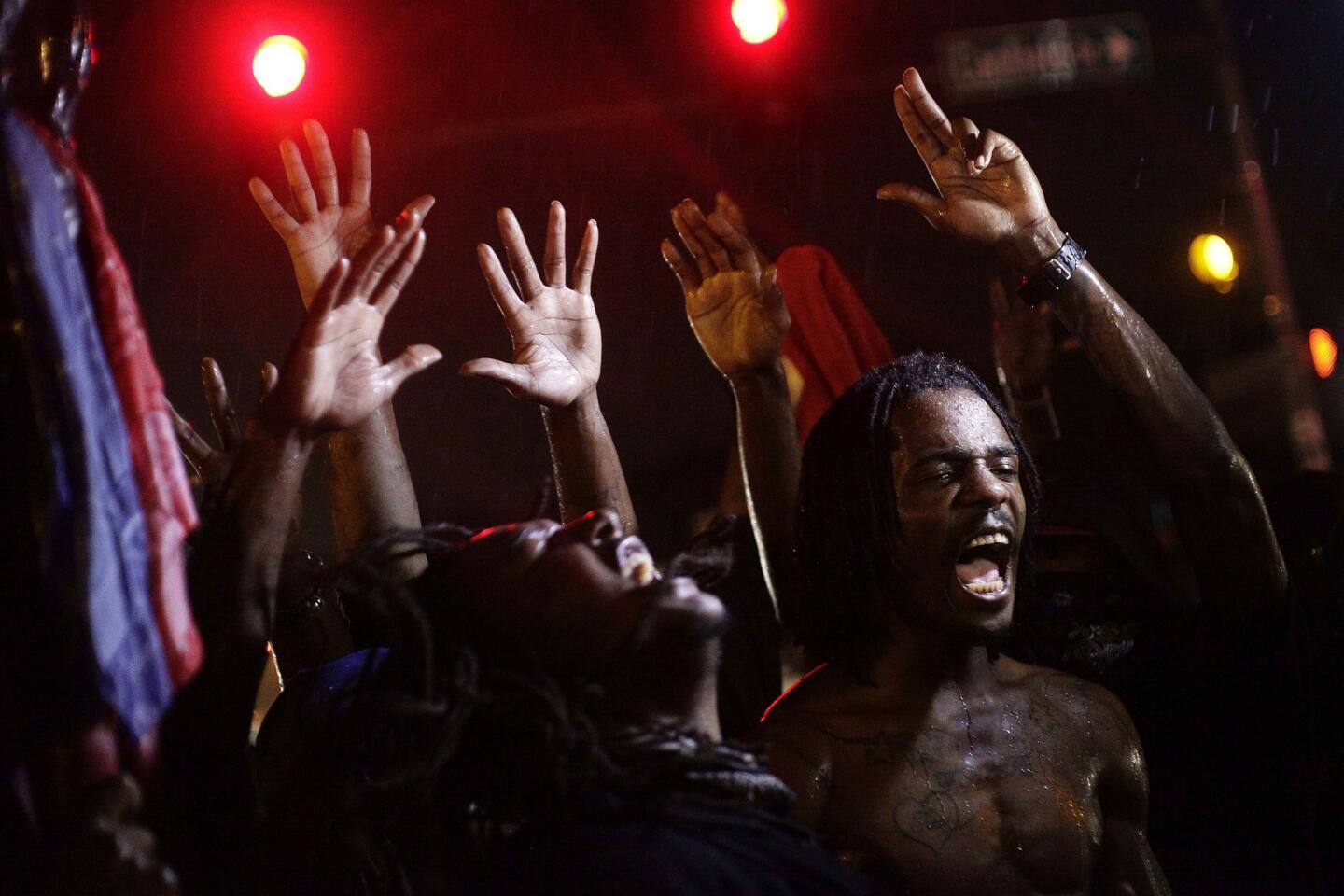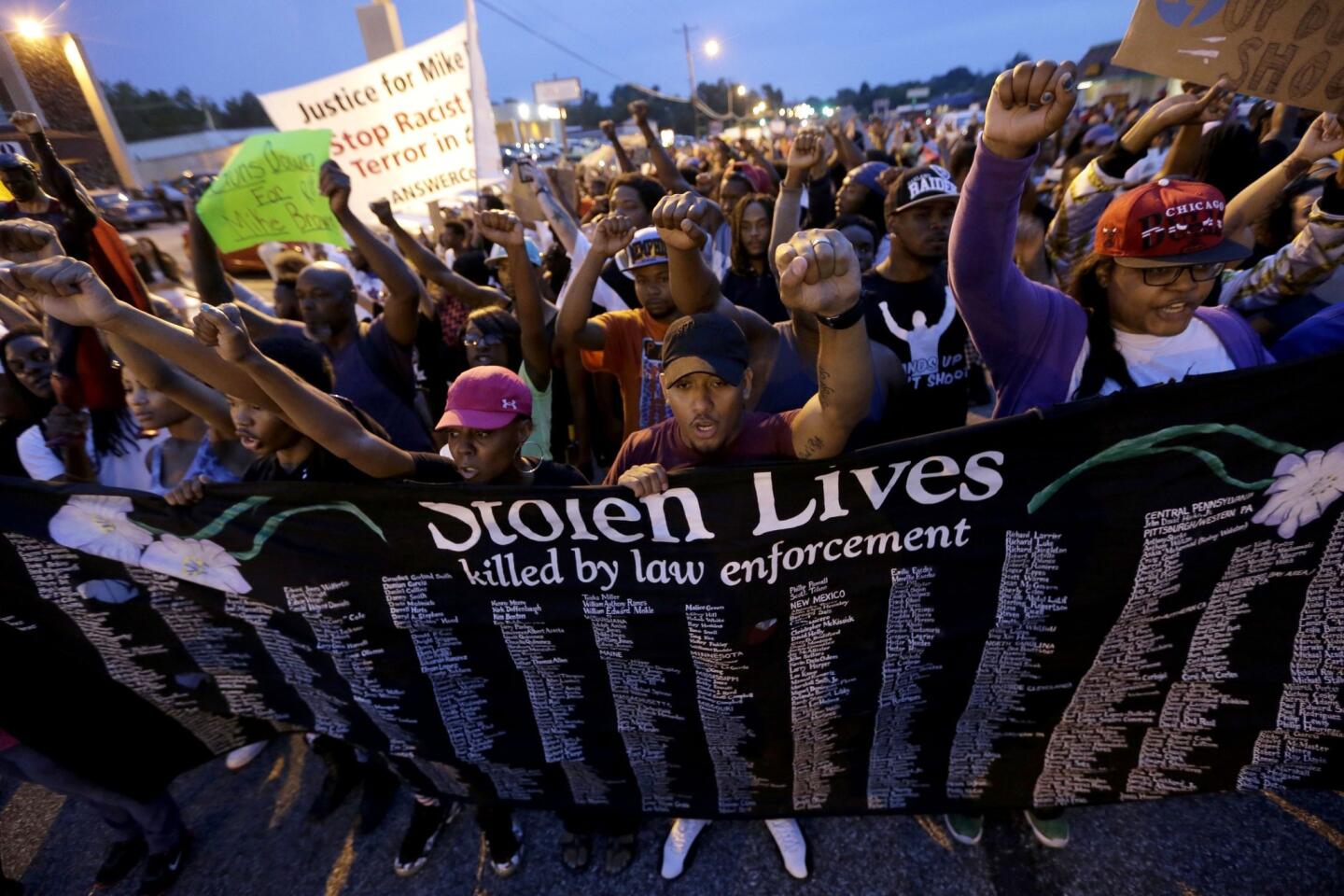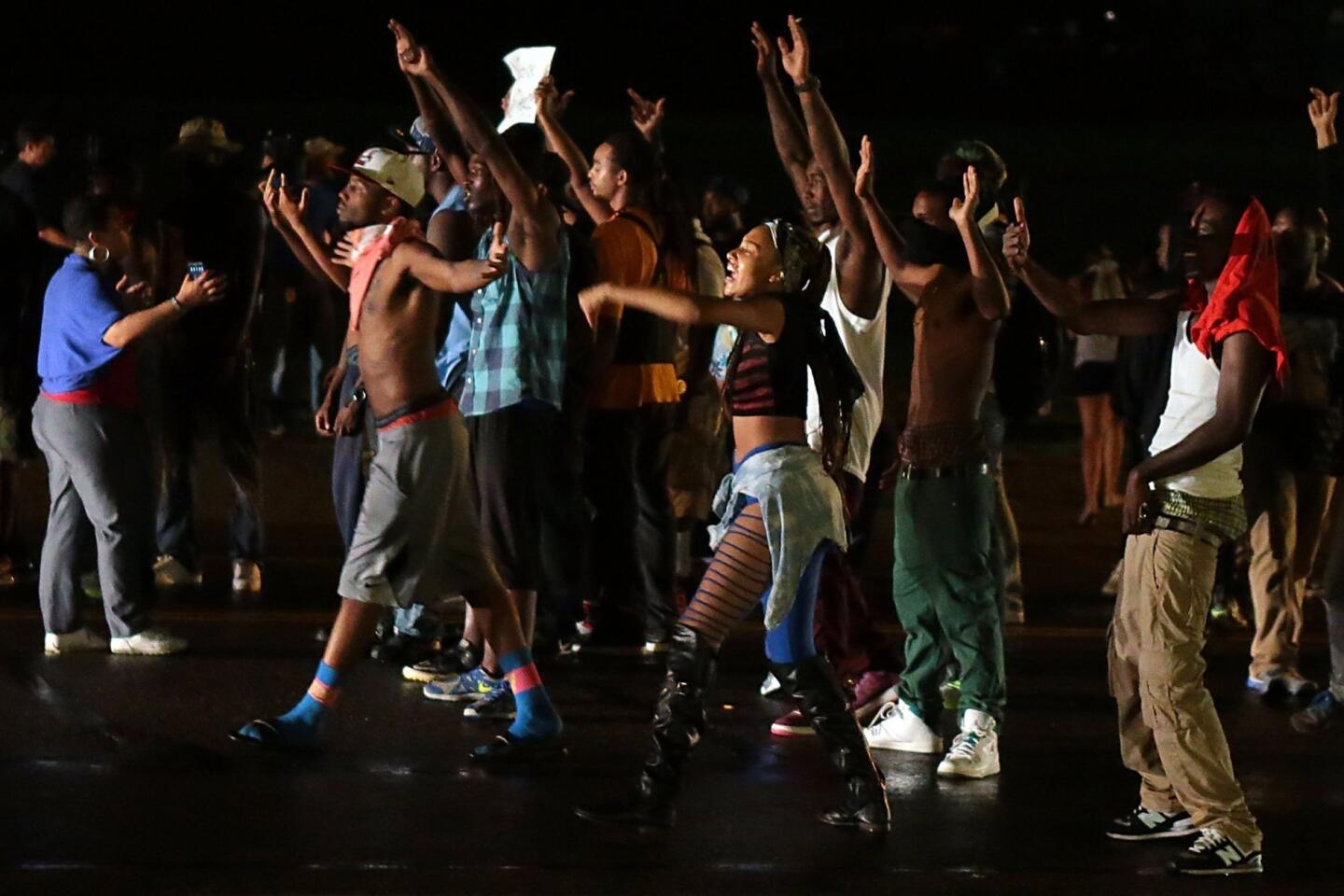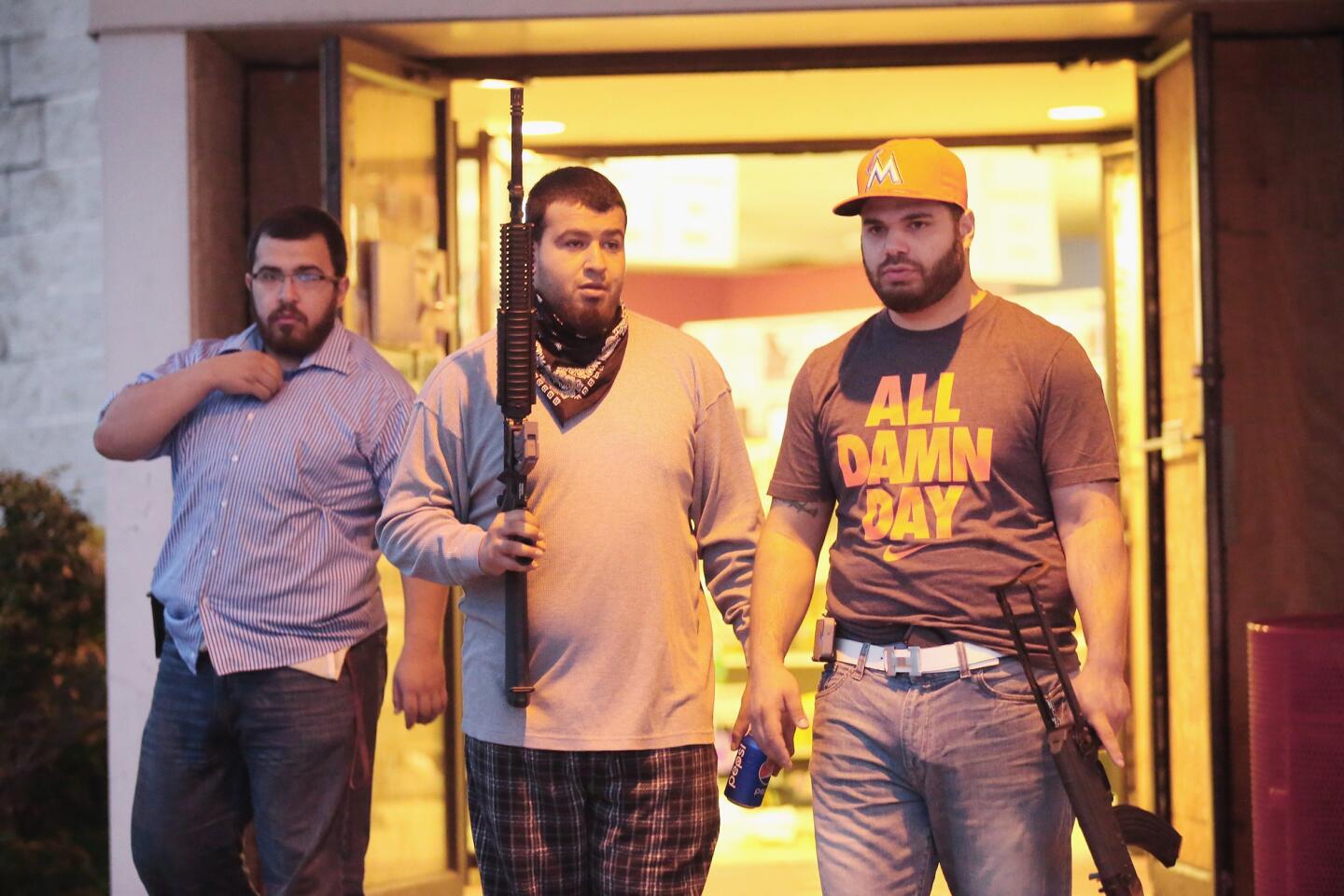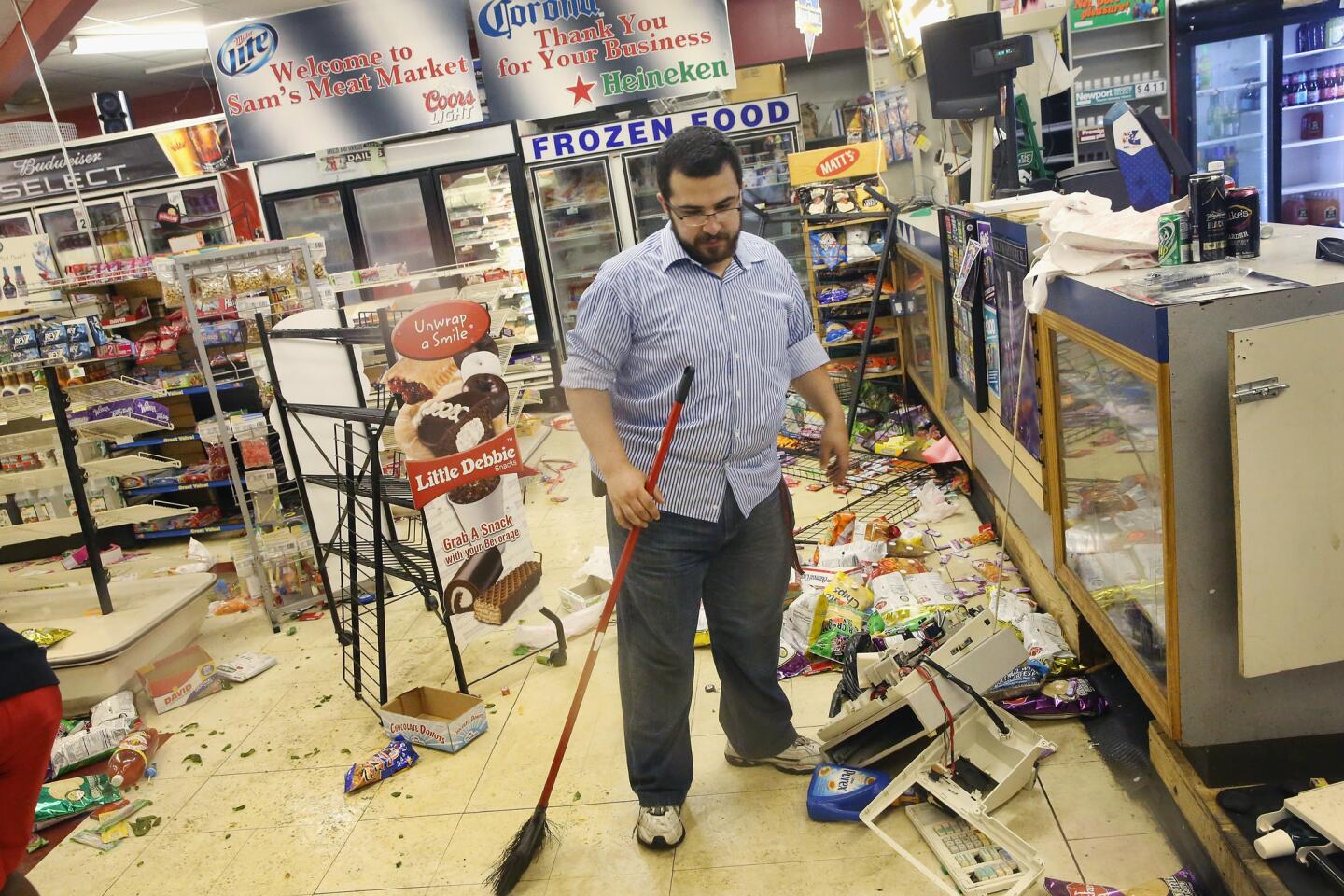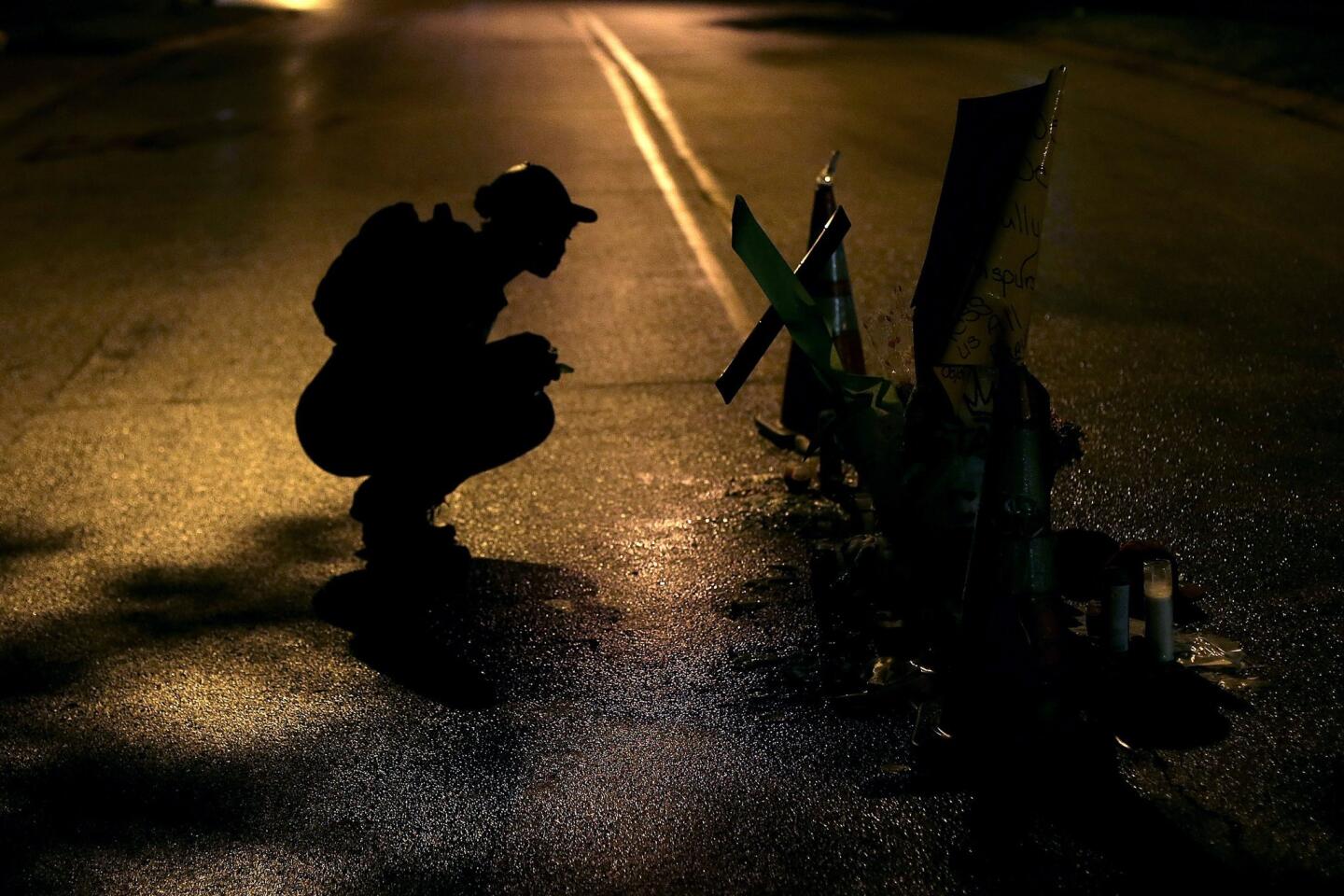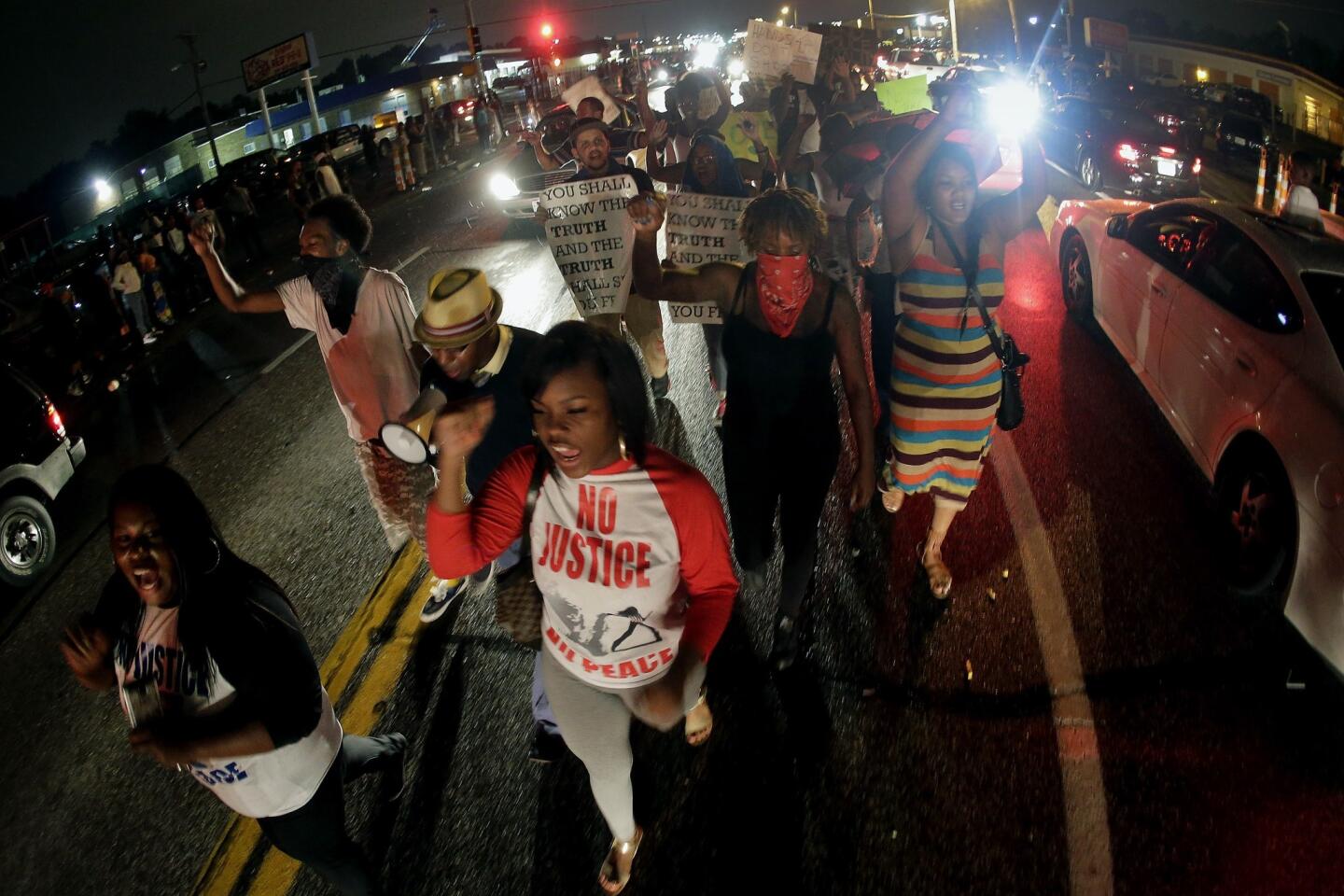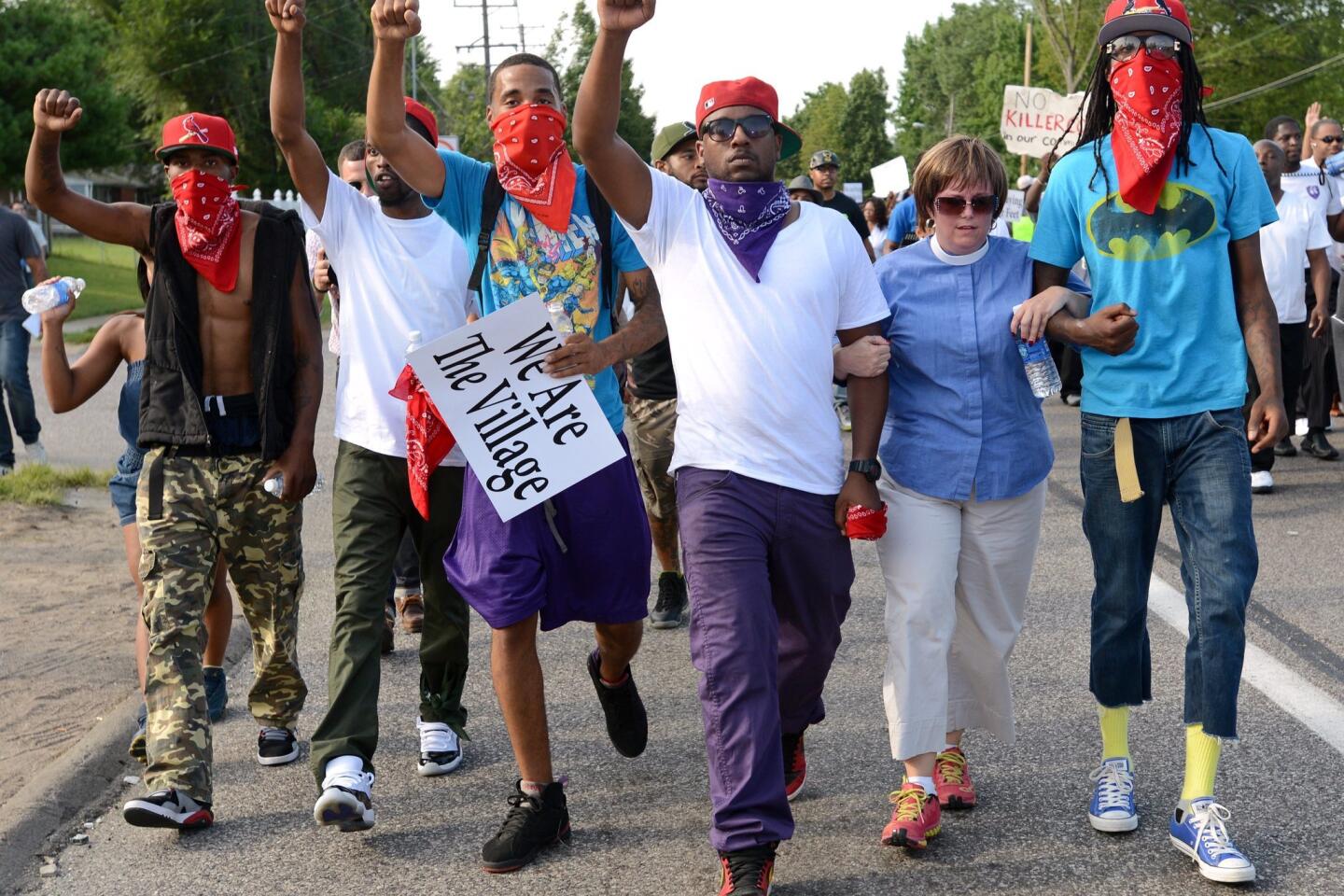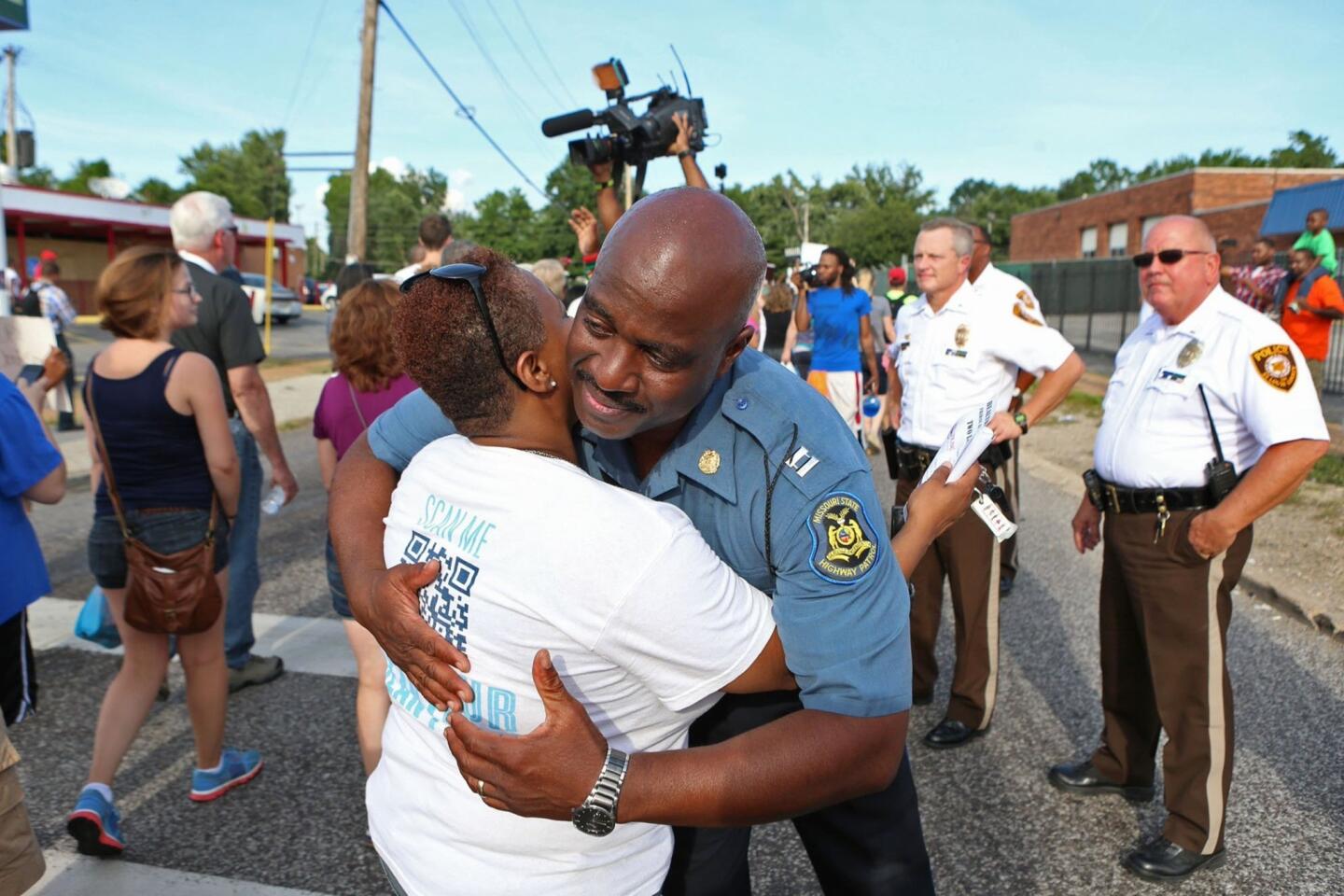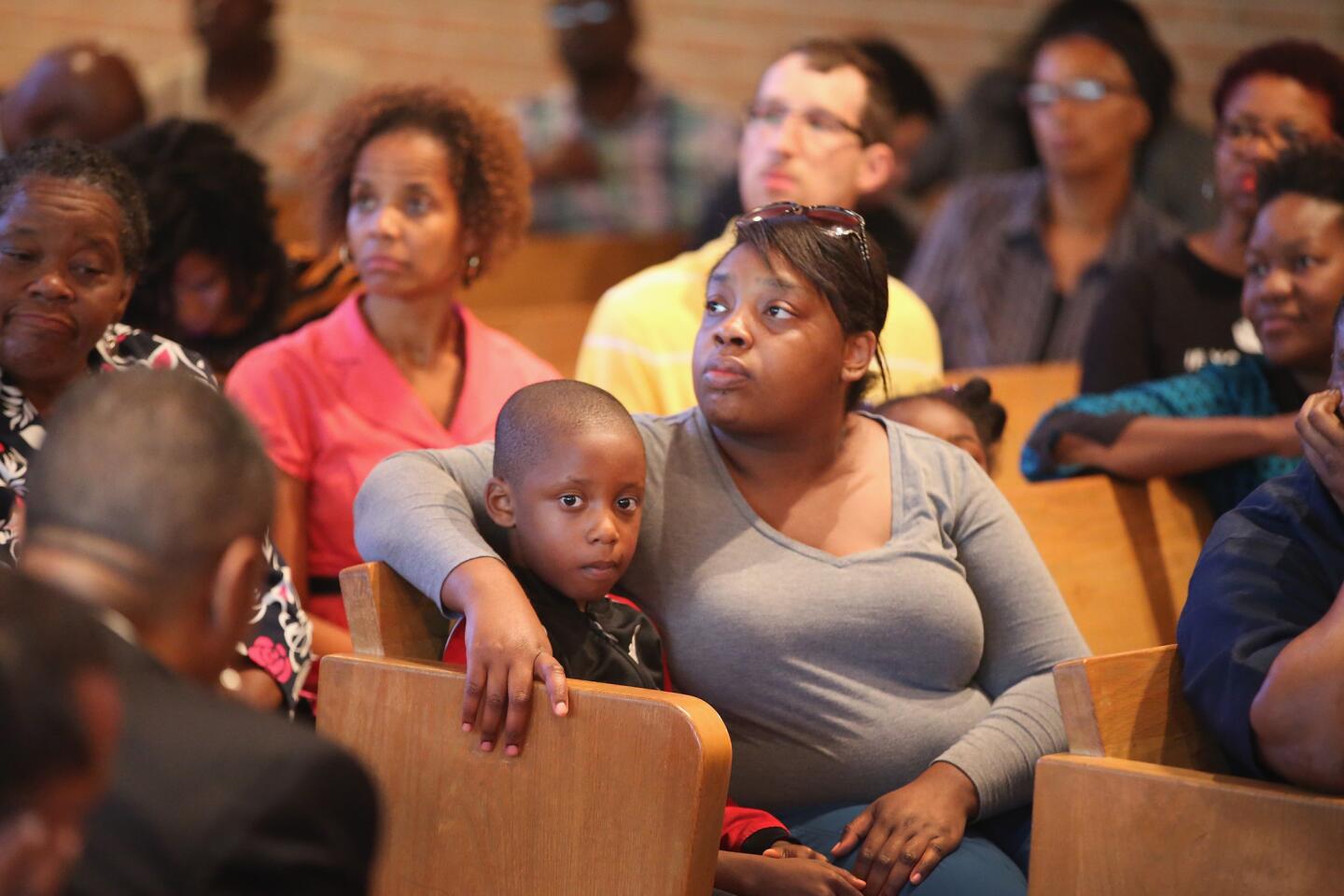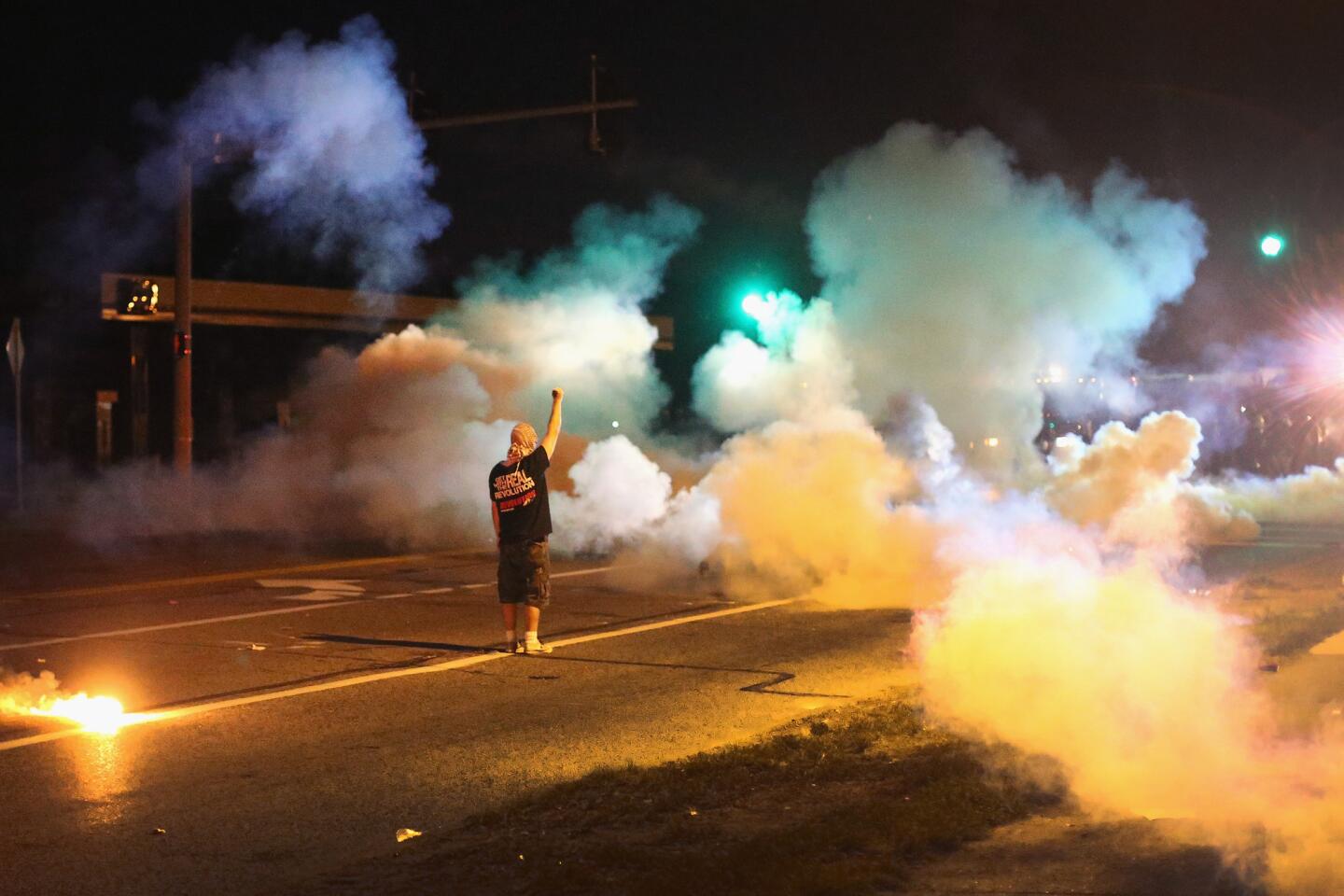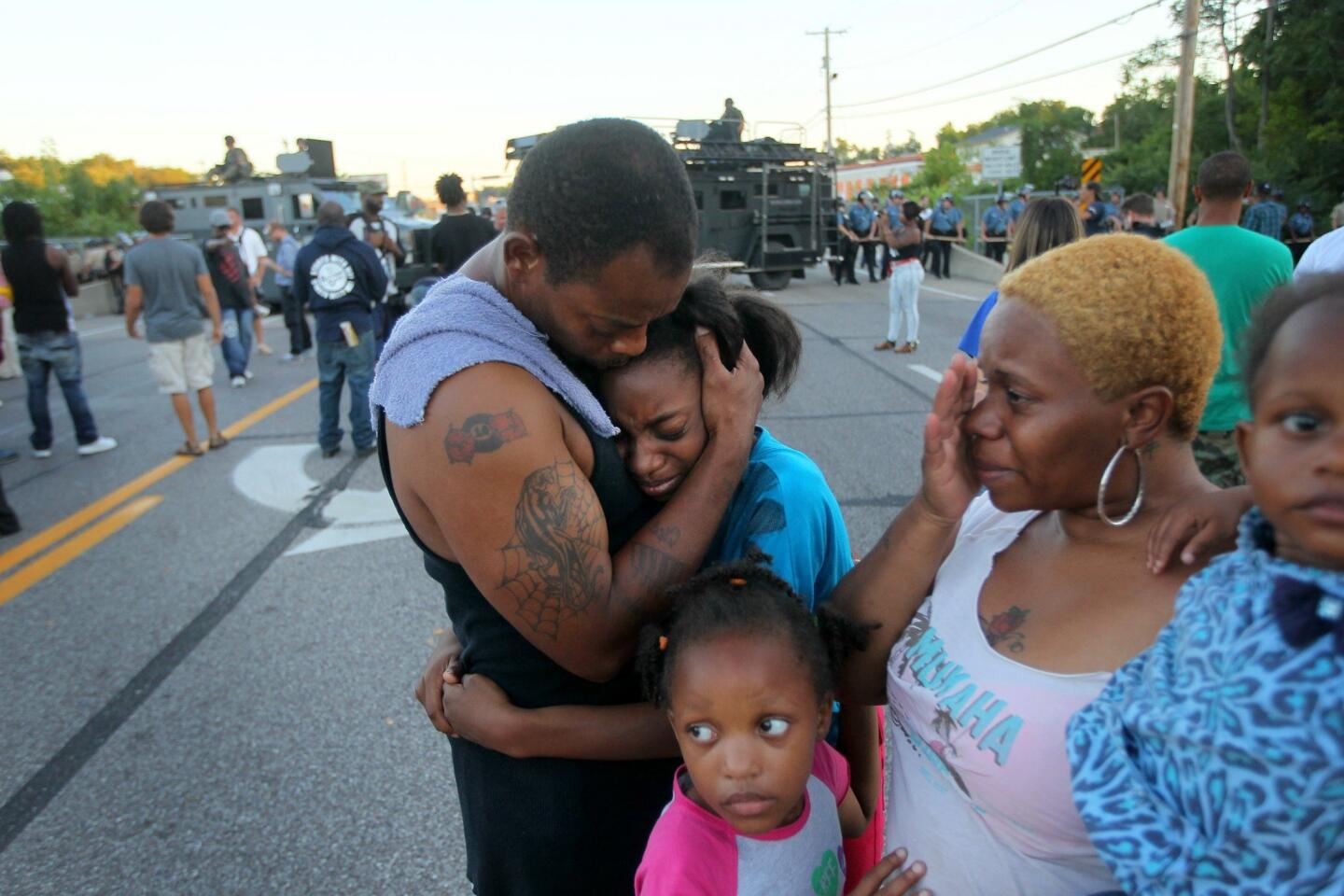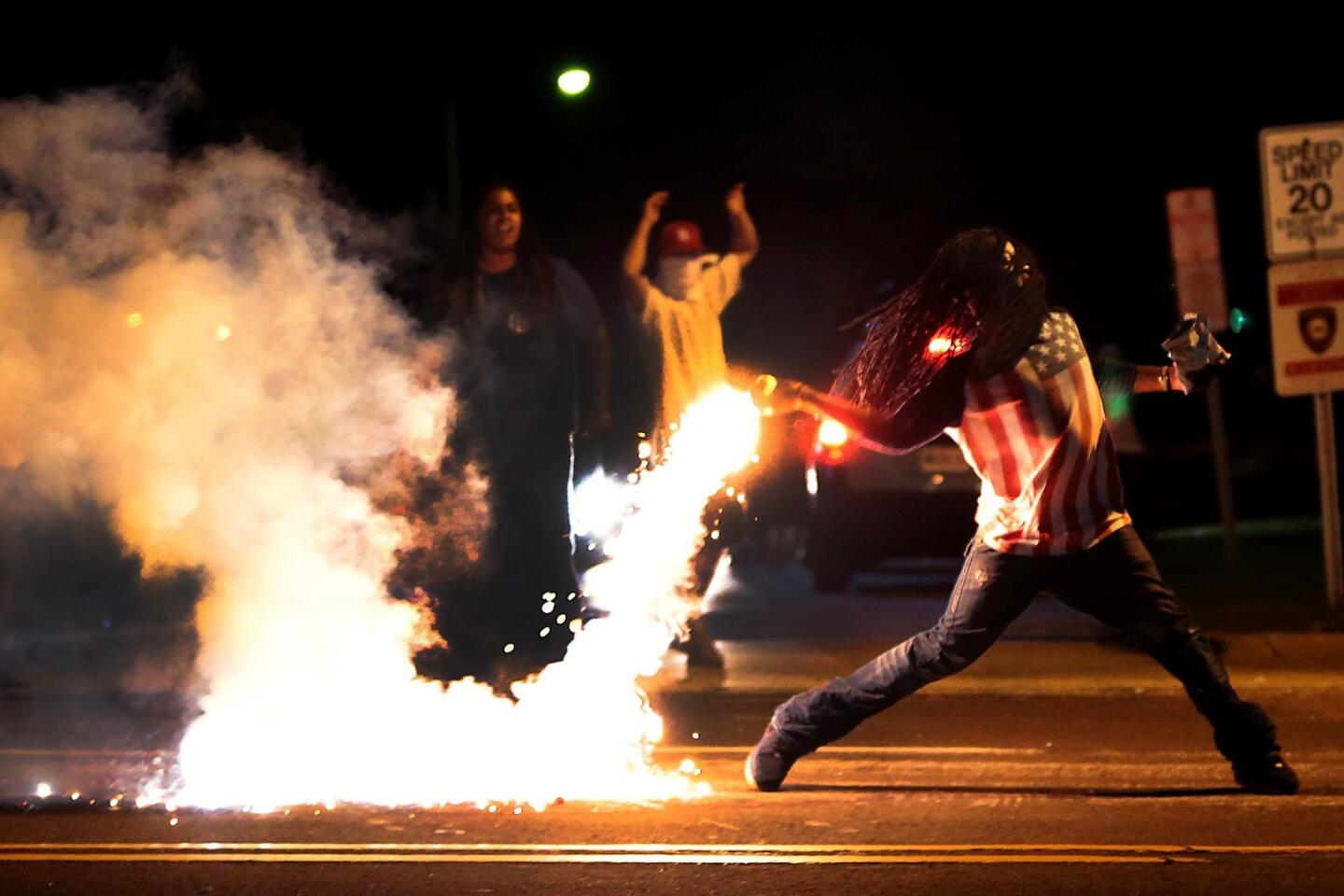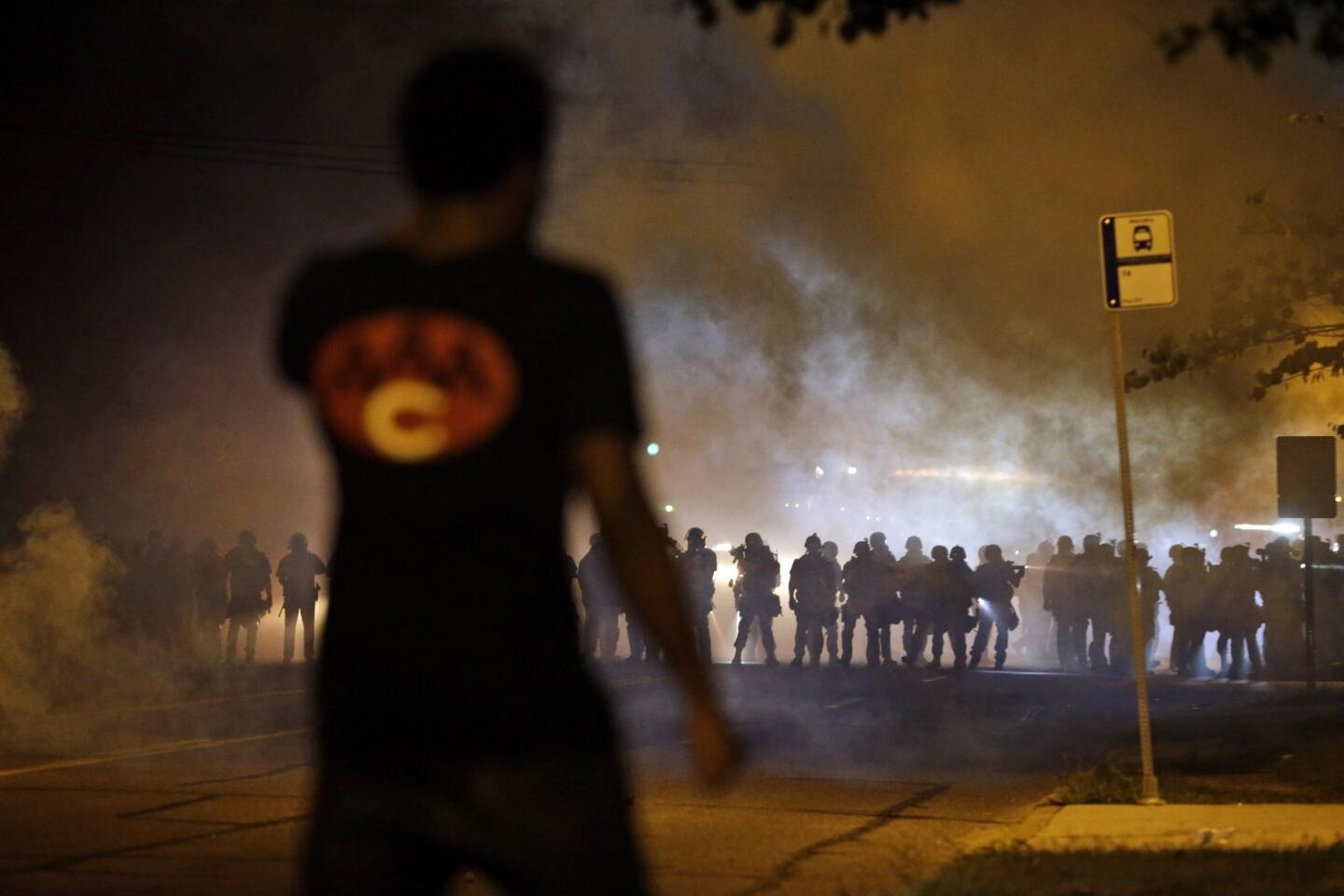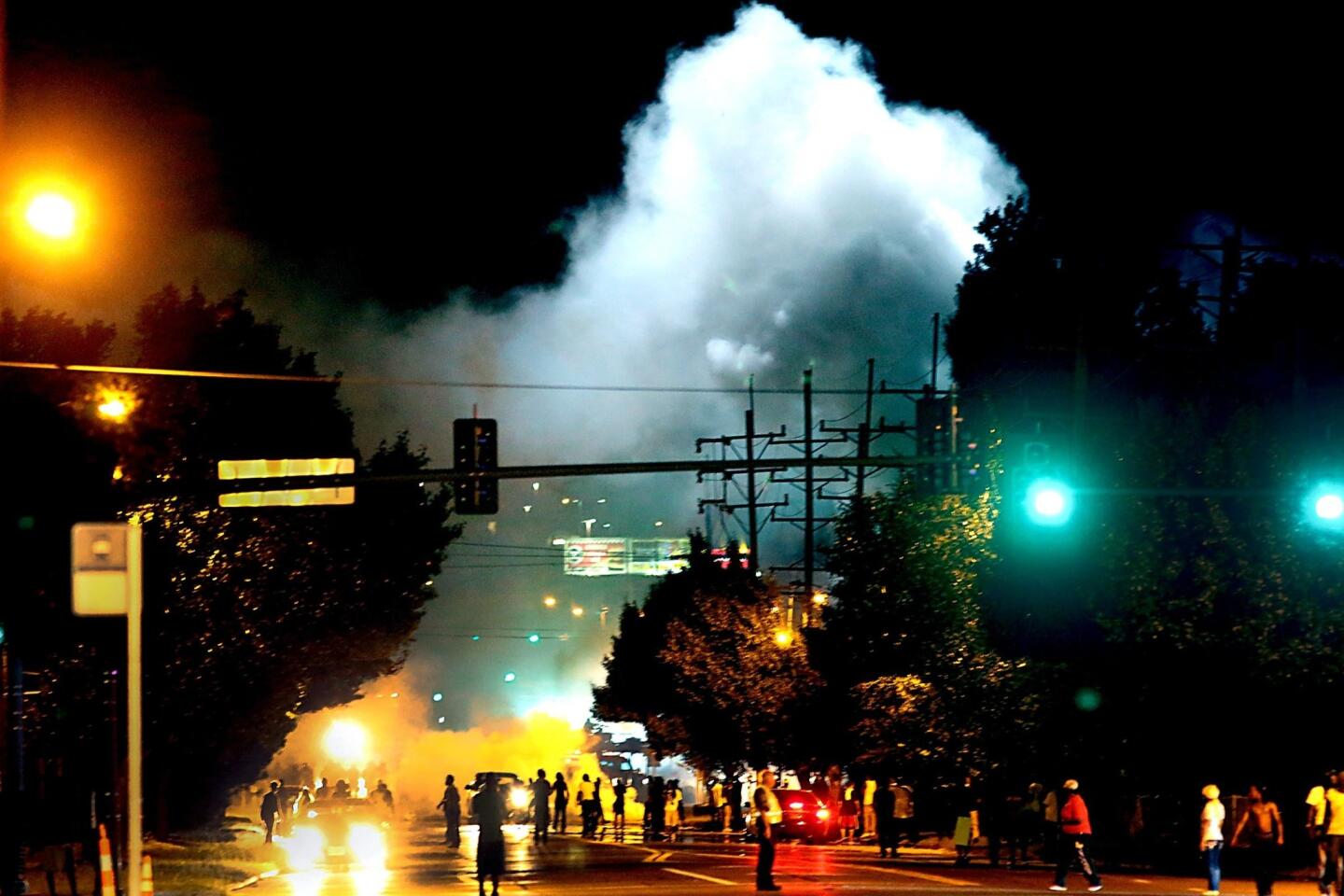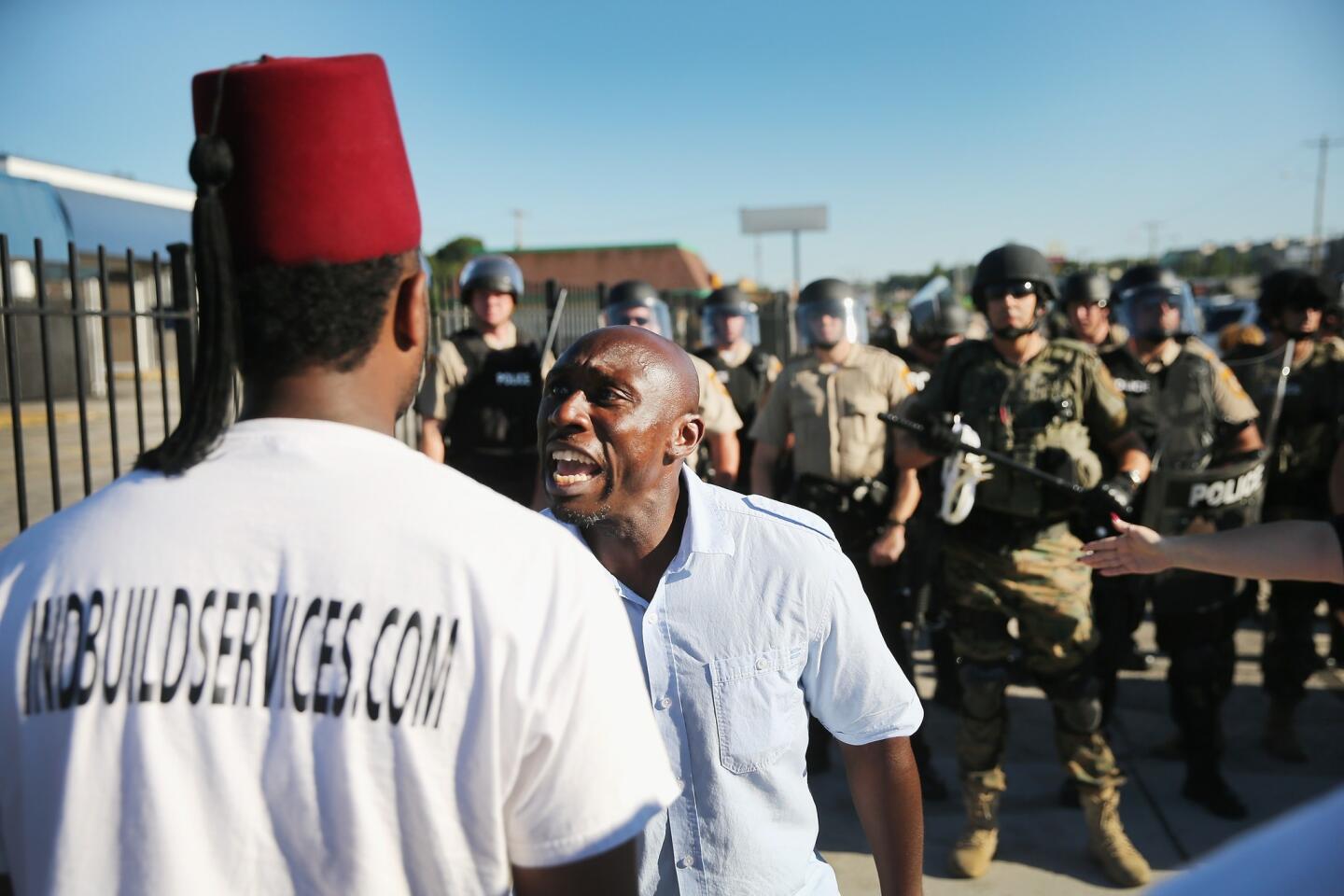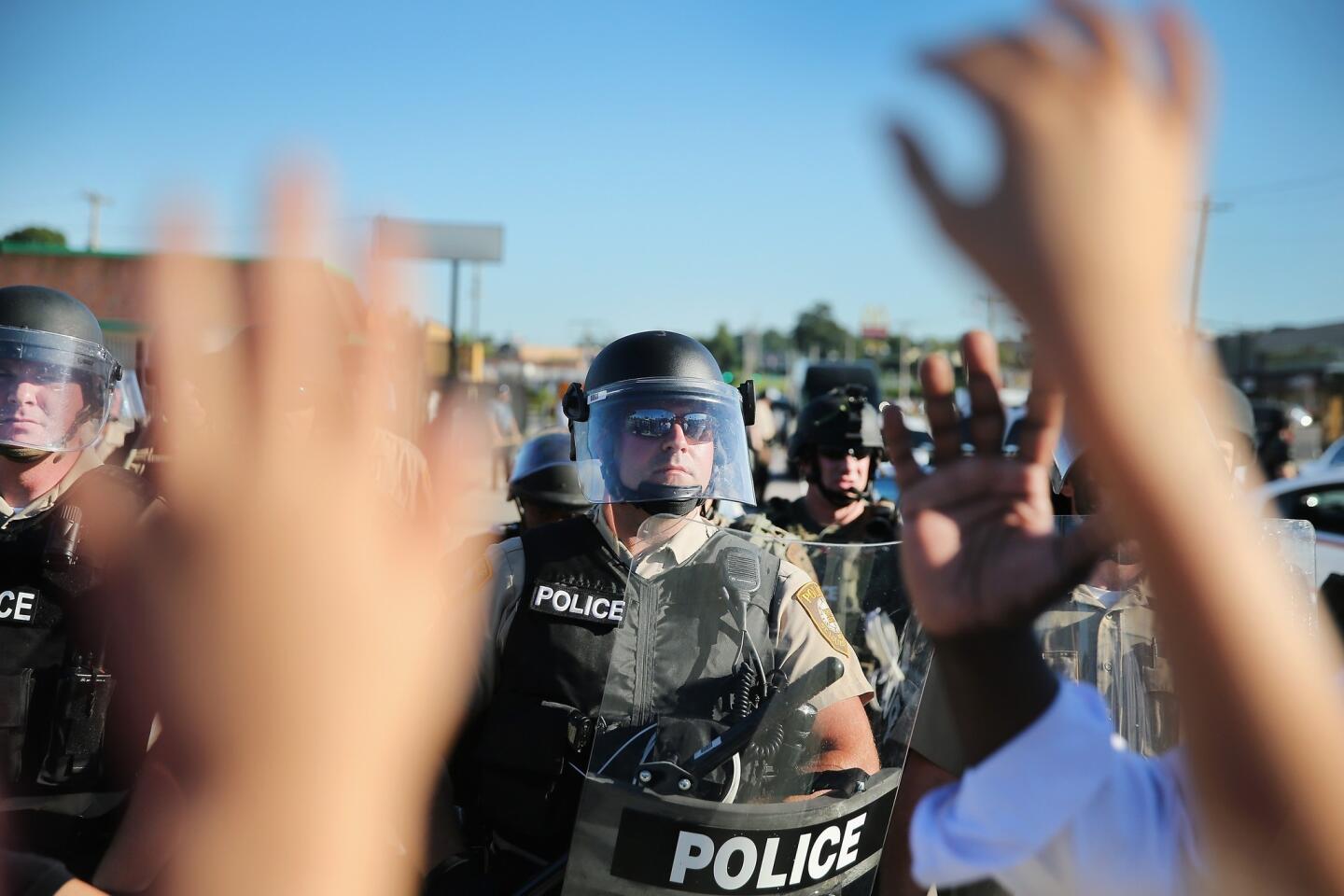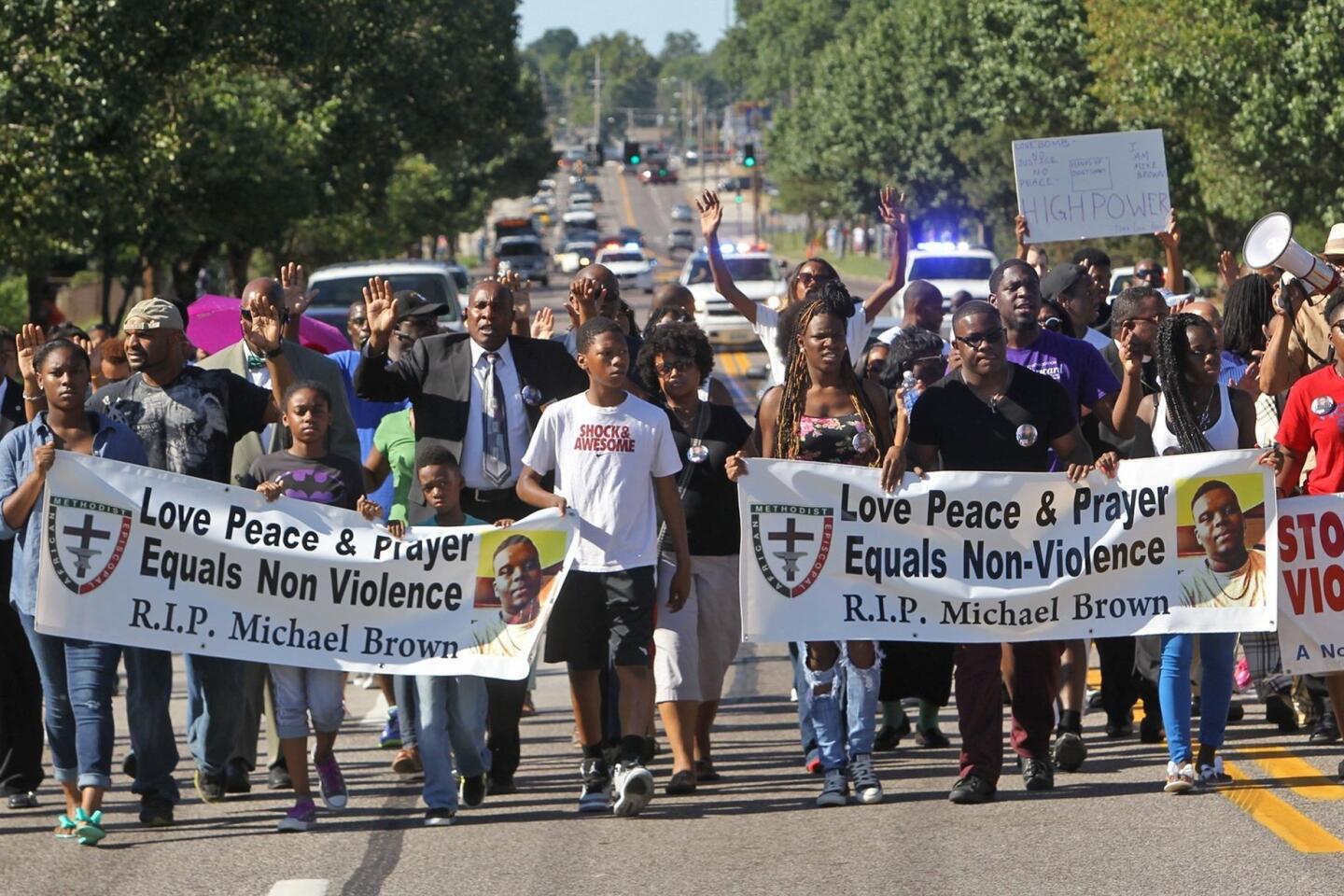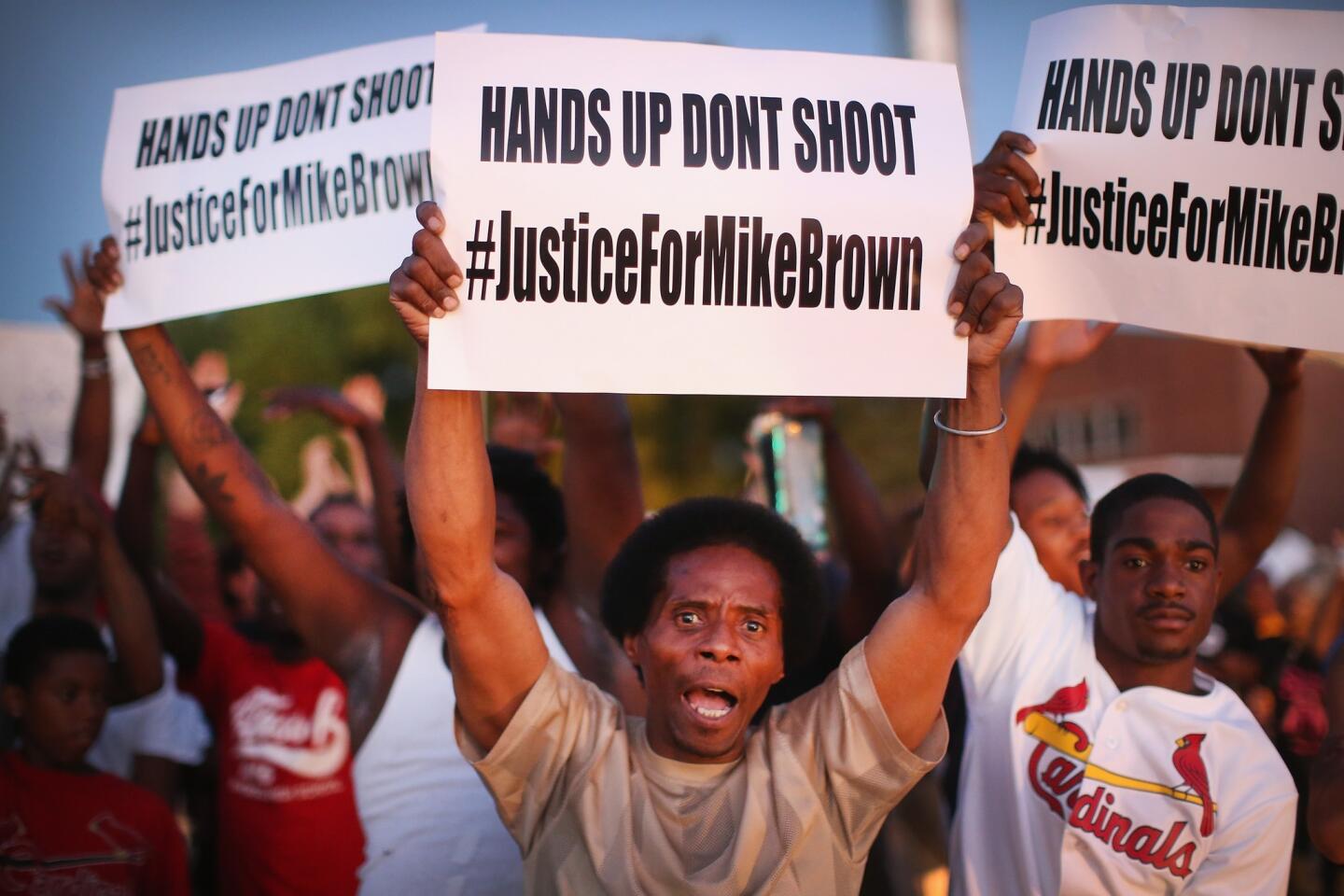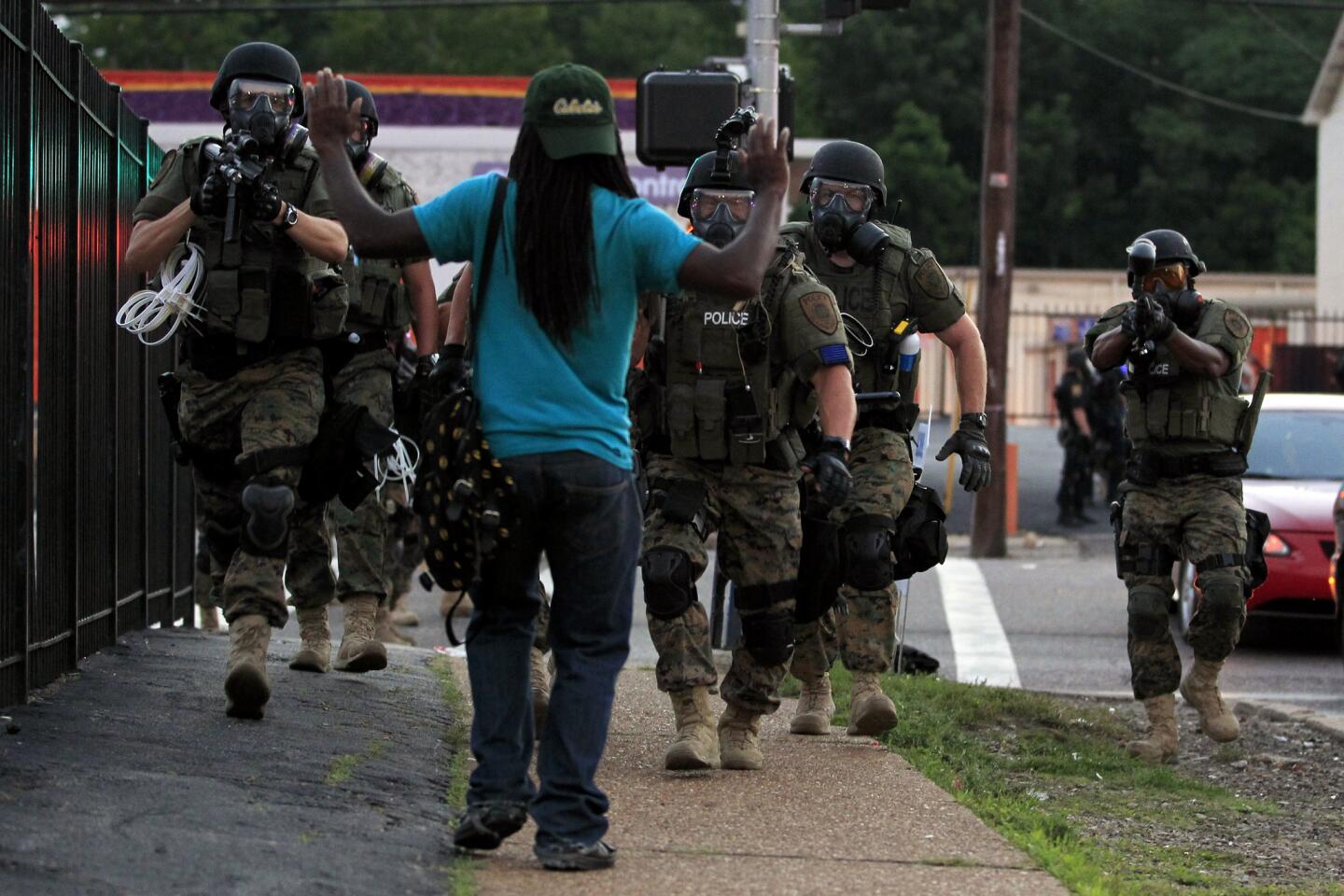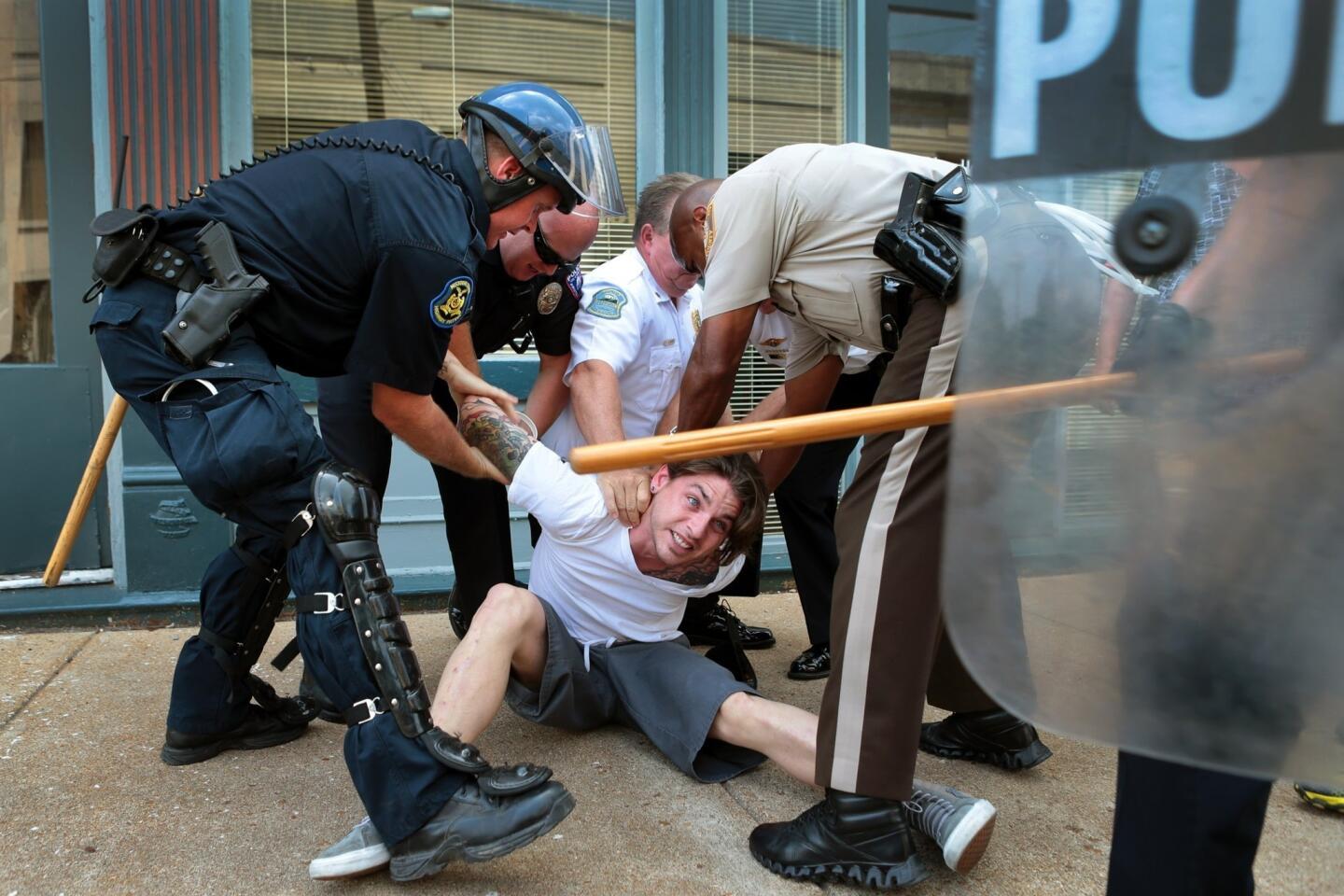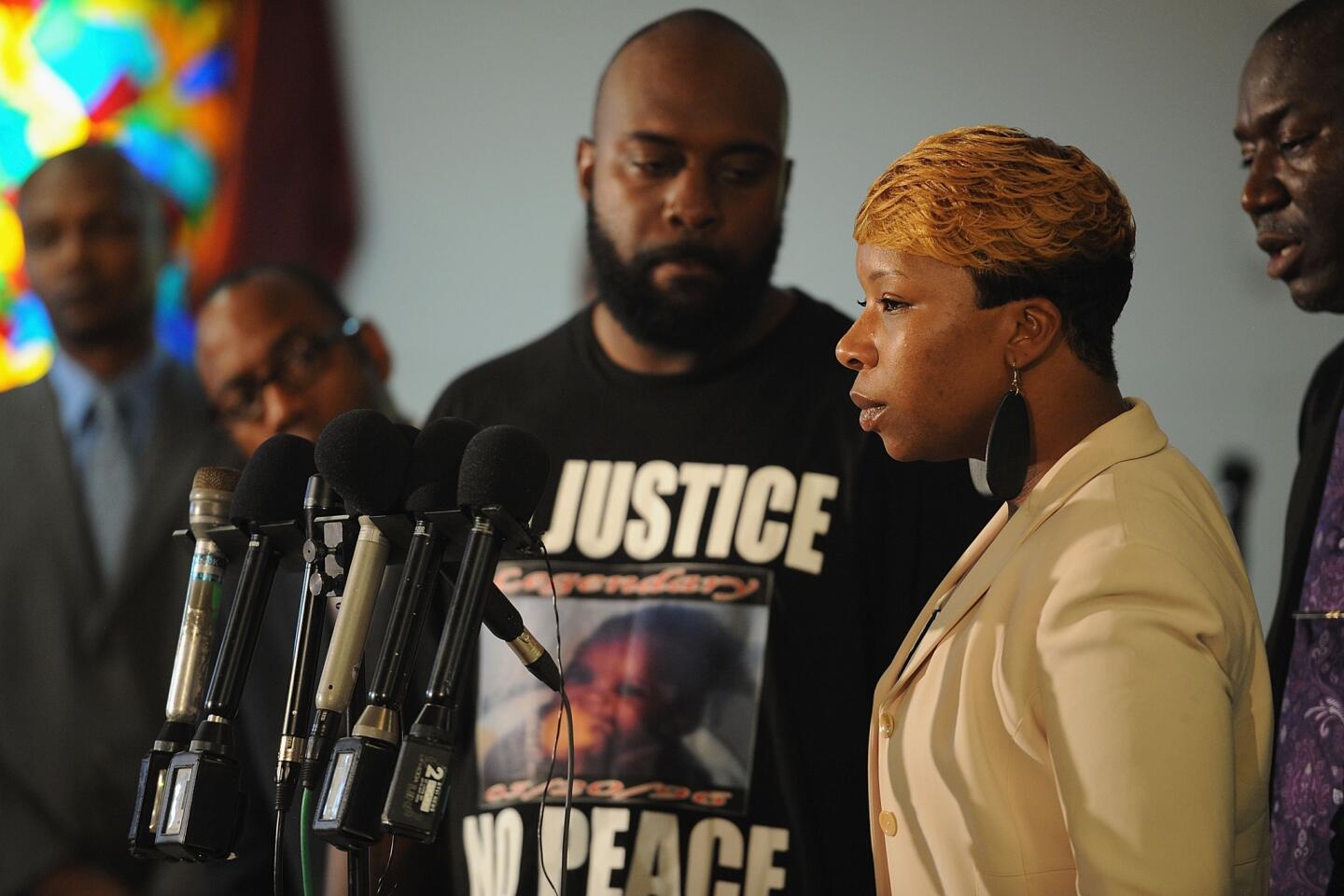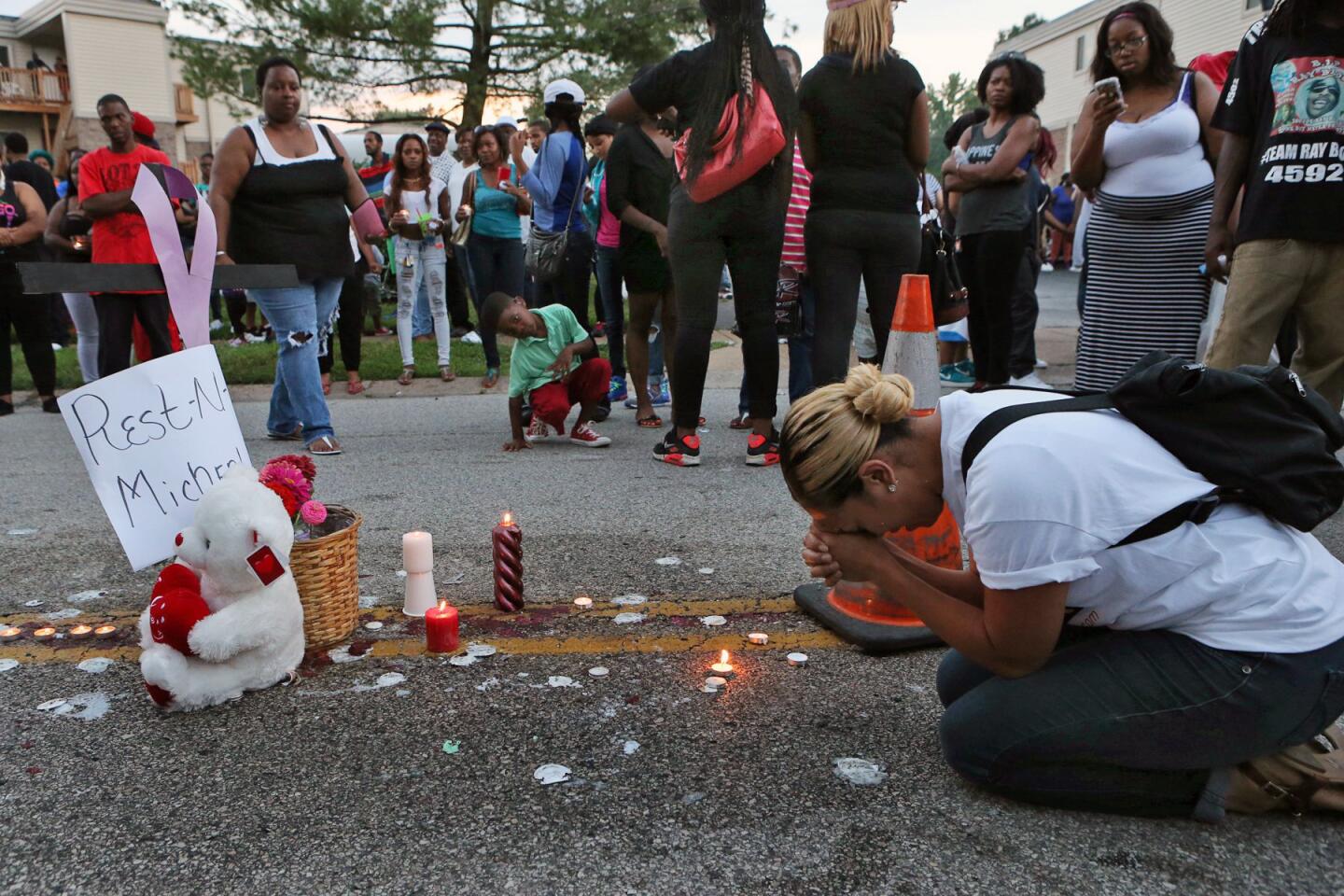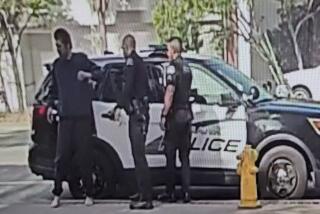Robbery matters little in shooting death of Michael Brown, experts say
- Share via
The fact that Michael Brown was a suspect in a strong-arm robbery that happened moments before he died should do little to quiet critics who have wondered why a Ferguson, Mo., police officer shot and killed the unarmed 18-year-old last week, law enforcement experts said.
On Friday, Ferguson Police Chief Thomas Jackson released surveillance footage and a police report that revealed Brown was suspected of stealing a box of cigars from a local convenience store shortly before he was gunned down Saturday.
But in a second news conference, Jackson said Officer Darren Wilson did not know Brown was a suspect in the robbery before approaching him. Brown was stopped for impeding traffic, police have said.
“If the robbery in any way caused the initial contact it has relevance … if it didn’t, it has none,” said Wayne Fisher, a professor with the Rutgers University Police Institute in New Jersey. “The use of deadly force in this situation will be authorized if the office reasonably believed his life was in danger, that question does not appear to be directly related to whether or not Brown was a suspect in a robbery.”
While Jackson said he released the information regarding the robbery due to public records requests filed by reporters, other experts suggested the information could be used to sully Brown’s name and in some way justify the fatal shooting.
“The officers did not know that he was a suspect. But he was a suspect, so the only thing I can think of is they are trying to come up with some more evidence that has not been released yet of his dangerousness,” said James Lasley, a professor of criminology at Cal State Fullerton and former advisor to the Los Angeles Police Department. “Maybe they’re trying to separate the two events, because obviously a strong-arm robbery is not going to justify the use of deadly force.”
Eugene O’Donnell, a former district attorney in New York City, said police may have released the robbery details to suggest Brown was acting erratically on the day of the shooting. While the police officer may have stopped Brown for the minor traffic violation, Brown may have been thinking the officer knew about the robbery.
“Obviously the cop’s reaction is not affected, but what could be affected is [Brown’s] reaction to the cop,” said O’Donnell, who now serves as a professor at the John Jay College of Criminal Justice.
Fisher and Lasley questioned the Ferguson Police Department’s resistance to releasing information, saying the delays likely led to the growing skepticism and anger in the St. Louis County community where clashes between police and citizens amid clouds of tear gas have been the norm for the past week.
“I think the longer they wait, the more they are calling into question the legitimacy of the shooting,” Lasley said. “Usually, in a shooting that is fully justified, [the police] are usually the first to go to the media and show that it was. The fact that they hesitated adds to the whole mystery of the situation. That’s very odd.”
Fisher said law enforcement in the area must do a better job of updating the public as to the status of the case if they hope to repair the already strained, if not destroyed, relationships between police officers and residents in Ferguson.
“There needs to be clear communication as to what happened and that communication needs to take place as soon as the information has been accurately compiled,” Fisher said. “If police officers are going to be authorized to use deadly force, then going forward, there needs to be public disclosure about the use of that authority.”
O’Donnell also said Jackson might want to recuse himself from future press conferences, as he is the face of the agency the community is railing against.
In short, O’Donnell said, residents and protesters are unlikely to believe anything Jackson says.
“You’re in a delicate time when you’re releasing sensitive information and it needs to be done as objectively and comprehensively as possible,” he said. “It’s perfectly understandable in human nature that the chief is going to try and portray his agency in as favorable a light as he can.”
Follow @JamesQueallyLAT for breaking news
More to Read
Sign up for Essential California
The most important California stories and recommendations in your inbox every morning.
You may occasionally receive promotional content from the Los Angeles Times.
